
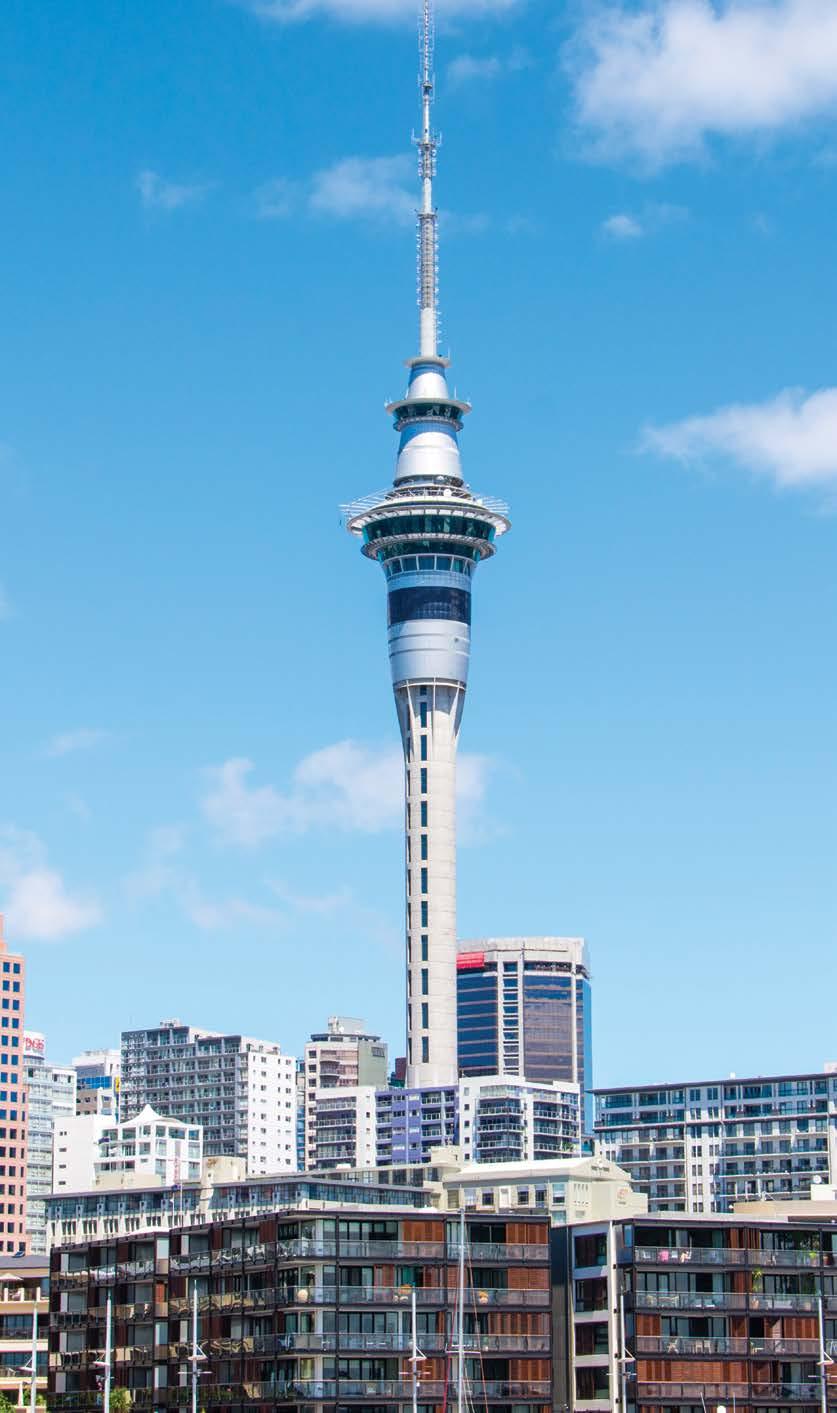

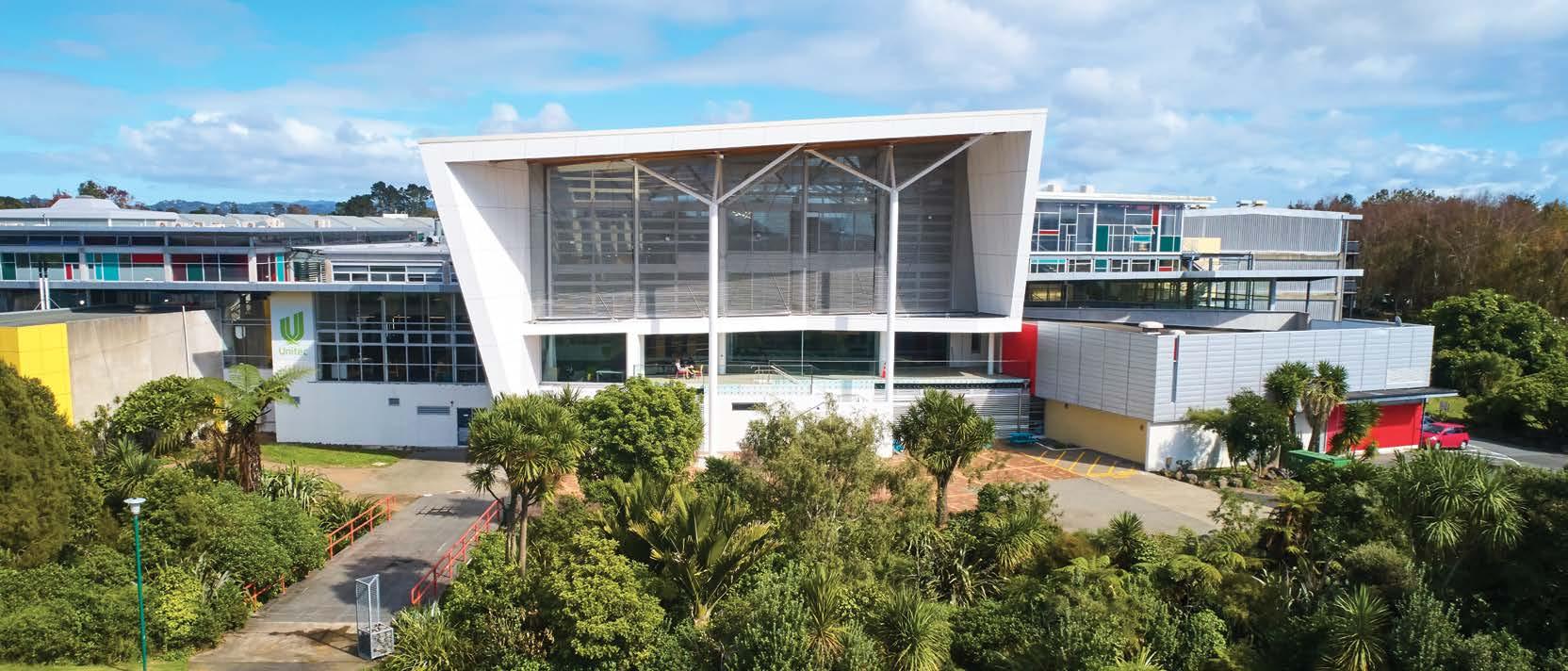
Table of Contents Living in Auckland 06 Choose Auckland Kia ora and Welcome 04 03 Choose Unitec 08 International Success 10 Our Campuses 12 Student Support Services 14 Accommodation 22 42 34 Orientation 16 Important Information 24 46 How to Apply 18 Your Wellness 25 50 Student Visa & Insurance 20 38 30 Support for under-18’s 26 52 68 Student Exchange Programme 28 62 58 72 You’ve landed 29 66 74 Computing & Information Technology Architecture Construction Business Creative Industries Healthcare & Social Work English Requirements Country Specific Criteria Early Childhood Education Engineering Environmental & Animal Sciences English Language Foundation & Bridging Education
Nau mai. Haere mai ki te Whare Wānanga o Wairaka!
Greetings, and welcome to Unitec!

We’re delighted to be welcoming international students back to Unitec in 2023 with our country’s borders fully re-opening after more than two years.
There has never been a more exciting time to be joining our Unitec whānau or family. Vocational education in Aotearoa New Zealand is changing to better meet the needs of learners just like you.
Unitec is a leader in adopting modern teaching and training approaches to prepare our students for success in workforce roles of the future. We provide qualifications across a wide range of professional and vocational subjects that are industry and employment-focused, from certificates through to postgraduate and master’s degrees.

Our award-winning teaching and learning practices are underpinned by our commitment to providing an environment where everyone has an equal opportunity to achieve their full potential, while at the same time recognising that everyone has different needs and ways of approaching their study.
We take great pride in connecting graduates to employment and providing opportunities for you to upskill while you’re in the workforce. Our graduates are in high demand with employers from a range of industries, with most of them progressing to employment or further study.
All our programmes are accredited and approved by the New Zealand Qualifications Authority (NZQA). We take a whānau or family-based approach to the wellbeing of all our students ensuring they feel welcomed, are well-supported and are taken care of while studying with us.
We provide free academic support, guidance and advice throughout our students’ time with us, and when you’re ready to move into employment, our Careers team provides support with CV writing and job interviews. In addition, we offer an extensive range of pastoral care support services, including our beautiful Te Noho Kotahitanga Marae, which provides a home-away-from-home for many of our international students.
With students from more than 80 different nationalities, we celebrate the many cultures and groups that make up our Unitec whānau, or family we reflect this diversity in all aspects of campus life, including Pacific Language Weeks, Matariki and Diwali Festivals.
As part a transformational change in New Zealand’s tertiary education sector, in 2023 Unitec will become part of Te Pūkenga, a national network of polytechnics and industry training organisations delivering skills training in a wide range of locations throughout Aotearoa New Zealand.
This means that from Semester 1, 2023, you’ll benefit from a network-wide range of opportunities as part of the wider Te Pūkenga whānau, or family. If you choose to study with us, you’ll join thousands of international students who call Tāmaki Makaurau, or Auckland, home. As New Zealand’s largest city, Auckland has endless opportunities to work, study and have fun, alongside exciting job and career opportunities in many sectors.
With an active multicultural community from across the world, Auckland’s vibrant cultures are celebrated in art, theatre, music and a host of spectacular cultural festivals. Bordered by two spectacular harbours, Auckland is a modern, cosmopolitan city surrounded by stunning and diverse natural landscapes. The region enjoys a warm, coastal climate and a central geographic location that provides a great balance for those students looking for the best in study, job and lifestyle options. We hope you find the information you need here to help you with your study choices
Thank you for your interest in Unitec and we look forward to welcoming you in 2023.
Ngā mihi nui
Gus Gilmore, CEO and Keith Ikin, Pou Hautu (Māori co-leader)

International Prospectus 2023 3
Choose Auckland
For boundless opportunities to work, study and have fun, join thousands of other international students who call Auckland home every year, and gain an internationally recognised qualification.
Auckland is a vibrant and welcoming place where you have the freedom to pursue your passions and wildest dreams. It is also known as ‘the most liveable city in the world’.
As New Zealand’s largest city (and one of the fastest growing), Auckland is a financial and economic powerhouse, offering exciting job and career opportunities for skilled graduates in many sectors.
Bordered by two spectacular harbours, Auckland is a modern, cosmopolitan city and a thriving hub of activity. The region enjoys a warm, coastal climate without any extreme temperatures (although it’s always a good idea to pack a rain jacket and sunscreen).
With stunning and diverse natural landscapes, Auckland’s central geographic location provides a great balance for those students looking for the best in study, job and lifestyle options.

Working during and after your studies
While holding a student visa in New Zealand, you will be focused primarily on your studies, but you may also be allowed to work part-time during certain holidays. It’s important to know your rights and responsibilities as a worker.
01.
Working on a student visa
You may be able to work part-time up to 20 hours per week and full-time during semester breaks and holiday periods. For more information about your student visa work rights and rights as an employee, visit Immigration NZ and Employment NZ.
02.
Post-study work visa
Once you’ve completed your studies, you may be able to apply for a post-study work visa. This allows you to stay in New Zealand to work for up to three years (depending on your qualifications). For more information, visit Immigration NZ.
From world-class restaurants to casual BBQs in the park, sipping coffee at one of many cafes to hiking through the Waitākere Ranges, learning to surf at Piha beach or visiting an art gallery, you’ll never be short of things to do and see. International Prospectus 2023 4
A rich cultural history
New Zealanders are proud of their diverse heritage, strongly influenced by the indigenous Māori culture. Over the years, the country has become a multi-cultural mix of people from all walks of life, and Kiwis are renowned for their warm,friendly and down-to-earth nature.


International
2023 5
Piha Beach, a popular beach located in West Auckland
Prospectus
Living in Auckland
How much it will cost to live and study at Unitec
In addition to your study fees, you need to factor in the money to cover accommodation, food, transport, mobile and Wi-Fi expenses, utility bills and entertainment costs.
You may also need to think about further study and living expenses, for example, textbooks/eBooks and stationery, insurance, health and wellbeing appointments, bank fees and any travel you might want to do while you’re in New Zealand.
As with many other large international cities, the cost of living in Auckland depends on your living situation and proximity to campus. Some suburbs are less expensive than others, but your travel expenses may be higher.
What you will find in Auckland is a high standard of living. It consistently ranks as one of the best places to live for its cleanliness, infrastructure, people, climate and huge variety of activities – all of which contribute to a safe, politically stable and highspirited place to live, work and study.
Immigration NZ recommends you budget NZ$20,000* per year, plus your return airfare. You can use this currency calculator to work out the equivalent amount in your home currency.

International Prospectus 2023 6
What things cost in New Zealand
Here’s what you can expect to pay for general living costs while you study in Auckland:
*This serves as a guideline only, please check Immigration NZ’s website for the most up-to-date information.
**Most major mobile providers offer monthly pre-paid plans that include data and calling minutes and you can top up as needed. Most companies also have rollover plans, so you can carry over any unused data to the next month.
Rent $180-$350 Per week Per month Per month Haircut $15-$50 Doctor’s Visit $10-$25 Lunch at Unitec $10-$17 Movie Ticket $10-$17 Entertainment $100-$150 Average Meal $30-$80 Groceries $100-$150 Per week Large Latte $3.50-$6.00 Single Bus Trip $2.20-$4 1 Litre Milk $2.35-$3.99 Phone Credit** $20-$60 Dentist’s Visit $95-$150 International Prospectus 2023 7
Choose Unitec
Find your passion, study in the real world
We know that employers want people who understand their jobs and can put that thinking into action. That means, when choosing a tertiary education provider, students are looking for the same things.
At Unitec, we offer a friendly and diverse learning environment with flexible study options, lots of support and hands-on work experience to build the skills and knowledge you need to excel in your future career.
Applied Learning Environment
We don’t just stay in touch with the real world, our students study in the real world. From tutors who work in the fields they teach and researchers who push the boundaries of innovation to relevant work experience and industry partnerships – that’s all part of every programme, whether you’re studying for a certificate or a postgraduate degree.
Acknowledging and celebrating diversity
At Unitec, there is a place for everyone to study and chase their dreams. We know that you bring the culture, experiences and perspectives that have helped shape the person you are today, and we work to ensure our teaching and learning environments enhance that diversity.
It’s what makes Unitec a truly unique place to work and study – we’re surrounded by the life and creativity of different cultures working and learning together to achieve greatness.

At the same time, your experience at Unitec will be underpinned by the deep respect we have for our tangata whenua (a Māori term that means people of the land).
Their teachings are woven into every aspect of life and study at Unitec, and we hope you walk away with a greater understanding of the sacredness of Māori culture.
Become part of our Unitec whānau (family)
Alongside all of that, you’ll be supported every step of the way by a team of academic and support staff who are dedicated to progressing your learning. It’s a privilege for us to welcome you into our family and we don’t take that responsibility lightly, so we make sure that help is always a phone call away.
International Prospectus 2023 8
Ready to get started?
Explore your study options – browse our range of programmes, fill out your application, and we’ll see you on campus!
If you need any help, get in touch with your agent or email international@unitec.ac.nz.
6 TH
OUT OF 139 NATIONS FOR BUSINESS
AND INNOVATION
This index measures things like demand for innovative products and skilled labour force.
Source: World Economic Forum, Networked Readiness Index 2016
That’s why we’re constantly developing and improving our teaching methods and technology applications to provide work-ready learning experiences, so when you graduate, you’re confident and ready to succeed in your chosen career.

Prospectus 2023 9
International
The International team is here for you International Success
Travelling overseas to study involves learning lots of new things about a different society, culture and system.
When you need help and support navigating the world of studying abroad, the International team will ensure you have what you need to live, learn and thrive at Unitec.

That includes:
• Academic programme advice
• Advice on programme entry and admission requirements
• Student visa and insurance information
• Accommodation options in Auckland
• Living in New Zealand
• International support and information
• Academic study support
• Wellbeing and care
Get connected with industry before you graduate
We regularly host a mix of on-campus and online career and employability events including workshops, networking events and guest speakers, so you can get connected with potential employers.
Connect Events (Career Fairs)
These events help match students with employers who are on the hunt for work-ready graduates. They also provide a forum for students to interact with potential employers, acknowledging that industry input adds to the readiness of our students.
Recruitment presentations
In your final period of study, you’ll be invited to attend these recruitment presentations. These are presentations by businesses actively recruiting graduates, interns, apprentices and part-time and full-time employees.
01.
International Prospectus 2023 10
02.
Student Connectors provide a helping hand
Student Connectors is a student support network for international students. Students volunteer their time to help international students settle into life in Auckland (Tāmaki Makaurau) and study at Unitec.
They connect students to our various support services on campus and are part of the official group that welcomes you to Unitec on International Welcome Day.
With first-hand experience in adjusting to life at Unitec, Student Connectors can offer useful tips and advice to help you create a sense of belonging in your home away from home.
Pathway into higher-level academic study
We have over 100 programmes to choose from, designed so you can start at the level that suits your experience and qualifications and make your way into higher-level programmes. They’re also internationally recognised, enabling you to shift into work in New Zealand and overseas.

So, whether you’re looking to try something new, upskill or push your knowledge and skills to new heights, we can help you find the right starting point so you can continue your learning journey.
We can help
Need help choosing the right programme? Get in touch
Unitec graduation
International Prospectus 2023 11
Our Campuses
Mt Albert Campus

Green and spacious with lots of parking, our Mt Albert campus is where you’ll find our marae, Te Noho Kotahitanga. It’s where all our students start and finish their study journey with us.
Te Puna is the hub of student and staff life at Unitec. It’s where you’ll find all our student services - so you can easily access the study support you need. It’s also where our library facilities, food outlets and student health centre are located.
Next door is one of New Zealand’s largest openplan trades training facilities, Mataaho. Designed to reflect a modern work site, Mataaho hosts students from all different disciplines who work and learn together using simulation and emulation tools – including the largest range of virtual reality, augmented reality and emulation equipment for trades training in the country.
Then across campus, Te Puna Kararehe is home to creatures of all shapes and sizes. The Animal Behaviour and Husbandry Centre provides a safe and secure place for students to learn about the care, health and husbandry of a wide range of companion animal species.
Both our campuses have a number of facilities available to help make your life as a student easier:
• Childcare
• Copy Centre
• Te Puna Waiora (Medical Centre)
• Te Pae Kōrero (Student Central)
• Food shops
• Library
• Security and safety
• Gender-neutral bathrooms
Te Whare Wānanga O Wairaka
International Prospectus 2023 12
Ally Network Gender Diverse Initiative
We want our students to know they are respected and valued whatever their sexual orientation. The ALLY network is made up of gay, straight, cis and diverse gendered staff and students who work towards building an inclusive learning environment.

Waitākere Campus
Te Whare Wānanga O Wairaka Ki Waitākere
Our West Auckland campus sits right in the heart of Henderson.

It’s situated across the road from the Henderson Library, giving you direct access to study resources like computers, library specialists and academic support.
Our Waitākere campus is in the perfect location for students studying our health programmes because of its proximity to local health and community services – these services will play a huge role in your learning experience.
Those students studying our nursing and medical imaging programmes will spend time at the Waitākere Hospital Āwhina Simulation Clinic, a sophisticated, high-tech clinical training facility. It provides key features of a fully operating hospital environment for students to learn, practise and observe.
Social work students get to complete work placements with services like Kākano Youth Arts Collective - a visual arts initiative for young artists based at Corban Estate Arts Centre just down the road from the campus. The campus also has a Student Central, where you’ll always find someone who can assist with programme enquiries and enrolments – it’s on the corner of Ratanui Street, Henderson for easy community access.
Gender-Neutral Bathroom Facilities
We want every one of our students to feel at home on campus – including having access to everything you need to feel comfortable. Like our gender-neutral bathroom facilities – we have 46 in total across both campuses.
Inter-Campus Shuttle
Need to get from one campus to the other? Make use of our inter-campus shuttle which departs regularly from both campuses – and it’s free for all Unitec students.

International Prospectus 2023 13
Student Support Services
Your success is our success – that’s our approach to everything we do
The most important thing to us is ensuring that our students feel welcomed, and well-supported and taken care of while studying with us. No matter what life throws your way or what help you need, the support and aroha to succeed will always be here.

In our eyes, a holistic approach to your study journey is what enables success. You’ll always be able to find someone to help you, from academic support and career development to health and wellbeing, connection with other students, financial support and spirituality.
Not only do we have a legal responsibility to support and look out for you, you’ve also paid for these services through your fees, so take advantage as much as you can during your studies to ensure you succeed.
Career Development
Our Career Development Team offers career advice and is free for all prospective and current Unitec students – also alumni. The career consultants not only help with getting your CV ready but will also maximise your employability and industry connections. Come and talk to the team if you need a hand planning the next step in your study journey or career.
Disability Support Services
The Access4Success team works to support students across Unitec with long-term, short-term, and temporary impairments. If you have a physical,
learning or sensory impairment, neurodiversity, mental distress or temporary injury, Access4Success offers resources and support like notetaking, assist technology, alternative exam arrangements and temporary parking permits.
Subject Librarians
Our Subject Librarians can help you find subject information for your assignments. They’re professionally qualified librarians, focusing on information literacy teaching, resource acquisition and research support.
Help on campus
Our International Student Support Advisors can answer any questions, help you navigate your way around your studies and ease you into student life on campus. Ask them about anything - financial support, scholarships, awards, grants and mentoring opportunities. They work closely with all student support services across both campuses and can refer and connect you to the right people and services.
International Prospectus 2023 14
See how students who are studying right now are using the student support services to help them along their learning journey.
Watch Student Stories at unitecstories.ac.nz
Top Tip
Have a chat to the team at the AskMe desk in Te Puna (Mt Albert) or the Hub (Waitākere) to speak with a Student Support Advisor. Te Pae Kōrero (Student Central) is your first point of contact for all programme enquiries and enrolments.

International Prospectus 2023 15
Get inspired
Orientation
Held at the beginning of each semester, orientation is designed to welcome you onto campus and help you prepare to study with us.
It’s about so much more than just learning to find your way around campus –it involves a range of activities focused on connecting you to our campuses, other students and lecturers, and introducing you to your programme of study.
You’ll be officially welcomed with a pōwhiri and campus tour which will start at our beautiful Te Noho Kotahitanga Marae. There’s no better way to welcome new students than through the doors of our wharenui (meeting house) Ngākau Māhaki.

International Welcome Day
This will be your introduction to life in Aotearoa (New Zealand), where you’ll learn more about Tāmaki Makaurau (Auckland) and get the information that will help you settle into your studies.
It’s a great way to connect with your classmates and lecturers, find your way around campus and make sure you have everything you need to hit the ground running.
O-Week
The first week of semester is filled with a number of free events and activities for students. It’s a great way to connect with your classmates and enjoy the social side of student life at Unitec. And throughout the year, we host cultural events on campus with food, music, activities, seminars and workshops, so our students can celebrate their heritage and uniqueness.
Top Tip
For more information on how to get the best start studying at Unitec, visit unitec.ac.nz/welcome.
International Prospectus 2023 16
To learn more about our Traditional meeting ground visit unitec.ac.nz/maori

International Prospectus 2023 17 2023 17
Te Noho Kotahitanga Marae
How to Apply
Unitec has a global network of trusted, authorised education agents who can provide you with information about applying to study at Unitec. Our agents know about New Zealand’s education system and Unitec’s programmes and entry requirements.


An agent can help you make the best study decisions. They’re your guide to preparing a successful enrolment application and getting ready to leave your home country.
Get immigration advice from Licenced Immigration Advisers
This means they’re licensed by the New Zealand Immigration Adviser’s Authority (IAA) to provide specialist immigration advice.
Some of our authorised education agents are also Licensed Immigration Advisers (LIAs), so they can assist with your application and immigration enquiries.
01. 02. International Prospectus 2023 18
The Application Process
Find the programme you want to study in this prospectus, on the Unitec website or by talking to your agent.
Check that you meet the academic and English language requirements for the programme you choose at unitec.ac.nz
01. 04.
Our team will assess your application and if all goes well, you’ll receive an offer to study at Unitec.
Top Tip
02. 05.
You or your agent will fill in the application form and create an account with Unitec.
If your offer is conditional, you may be required to complete additional tasks. Complete these as quickly as possible so we can make you an unconditional offer (which you’ll need for your student visa application).
03. 06.
You’ll need to complete some application tasks. This could be providing your CV, statement of purpose or relevant portfolio, as well as certified ID documents (passport or birth certificate), and academic records.
Pay your fees after you accept your unconditional offer. In some cases, tuition fees should be paid after obtaining an Approval in Principle (AIP) for your student visa.
A conditional offer means you still need to meet some requirements before you can be admitted to your programme of choice. Once you have an unconditional offer, you can pay your fees and complete your enrolment.
Country Specific Criteria
Unitec welcomes applications from international students, and we accept a wide range of qualifications for undergraduate and postgraduate study.
For more information on Country specific criteria, visit our Unitec website. 19
These are the application steps you’ll go through, whether you decide to apply with an agent or on your own.
Find your thing Start your application Upload documents Offer to study at Unitec Finish your application tasks Pay your tuition fees
Student Visa and Insurance
Get medical and travel insurance – it’s essential!
All international students studying at Unitec for longer than two weeks are required to have Unitec-approved medical and travel insurance.
The insurance needs to cover travel to and from New Zealand and the complete enrolment period – until the expiry of your student visa. This means your insurance should begin from the day you depart your home country until your final visa expiry date.
Unitec-placed insurance
We can provide you with cover through Southern Cross International Student Travel Insurance (SCTI). All Unitec-placed insurance is with SCTI. You’ll need to complete and sign the SCTI Insurance Application Form and email it to Unitec Insurance Team at insurance@unitec.ac.nz.
Arrange your own insurance (must be Unitec-approved)
You can arrange your own insurance with an alternative provider, and it must be approved by Unitec by emailing the Unitec Insurance Team at insurance@unitec.ac.nz by the first day of the month your programme begins. The coverage must be effective from the date of your flight to New Zealand (please send us a copy of your air ticket and student visa) and cover up to the last day of your study visa. Unitec will review your coverage to confirm it complies with the Code of Practice. If not provided by the cut-off date, Unitec will arrange insurance for you.
What to do if an accident happens
All international students must have medical insurance while they’re in New Zealand. If you’re treated by a doctor, nurse or counsellor at a student health centre on campus, you can provide your insurance information to cover the payments. If you’re hurt in an accident while you’re studying in New Zealand, ACC will pay for some of your medical treatment costs and can help support you in other ways too.

To find out how ACC can support you if you have an injury, visit the ACC website.
Find out more
For further information regarding insurance requirements while studying at Unitec, email insurance@unitec.ac.nz or visit unitec.ac.nz
International Prospectus 2023 20
Your visa requirements
As an international student, you must have a student visa to lawfully study full-time and live in New Zealand.
It’s important to apply for your student visa as soon as you have all the required documentation, as the application process can take a bit of time. For detailed criteria and evidence required to apply for a student visa, visit Immigration New Zealand’s website.
Once you have a valid student visa to study in New Zealand, you’ll need to upload a copy to your Enrolment Portal and email it to the Unitec Visa Team at studentvisa@unitec.ac.nz.
Without a valid student visa to study at Unitec, you cannot attend any classes. Immigration New Zealand requires Unitec to comply with these rules and report students who fail to provide valid documentation.

Find out more
For more information on student visas, contact our visa team by sending an email to studentvisa@unitec.ac.nz or visit unitec.ac.nz.
For the most recent information regarding travelling to New Zealand, please visit Unite COVID-19 or visit Immigration New Zealand.
International Prospectus 2023 21
Finding a place to live while you study Accommodation
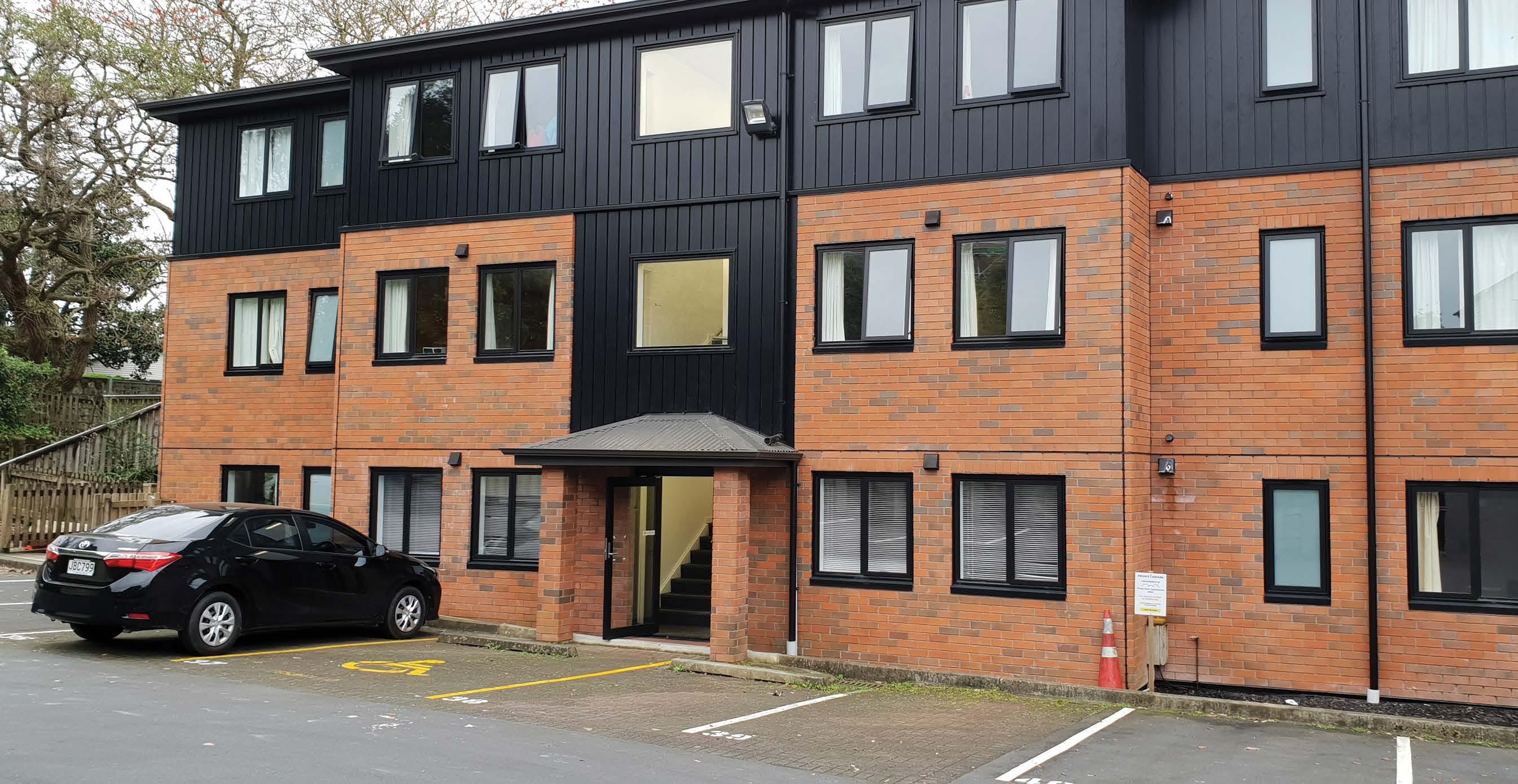
There are plenty of accommodation options, from renting a room in an off-campus flat to on-campus rental apartments and homestays.
You’ll want to organise your accommodation before you arrive in New Zealand. That way, when you land, you can get straight into student life and exploring Auckland.
Here are some things you might want to consider:
Getting to Unitec
Living in a suburb that’s close by will give you the freedom to walk or bike to campus, or maybe you’d like to live in the city which means you’ll need to factor in your daily commute.
Go flatting
Flatting is renting a room in a shared house. Your room is private, but the lounge, kitchen and bathroom are shared. You and your flatmates are responsible for cooking, cleaning and paying the bills.
Host families (Homestay)
For most international students, living with a local family is a great way to settle into a new country. Unitec has partnered with Host Families NZ for homestay services, so students can experience living a New Zealand lifestyle.
Here are the costs of arranging a homestay (all fees are GST inclusive and subject to change):
• Placement fee: $300
• Admin fee: $150
Study environment at home
Flatting is a great option if you prefer a more independent lifestyle, otherwise a homestay will give you that family vibe. Think about your study habits too, and choose an accommodation option that will support your success.
• Airport pick-up: $120 (one-way)
• Weekly homestay charge: $300-350 per week
02. International Prospectus 2023 22
01.
Campus Waterview
Located at the edge of Unitec’s Mt Albert campus, Campus Waterview offers shared 3, 4, and 5 bedroom, fully-furnished student apartments with brand new exterior, carpet, double-glazed windows, kitchen and bathroom.
The apartments are monitored 24 hours a day with an experienced residential manager who lives on-site, to ensure a safe and secure environment for students. They’re supported by a Residential Assistant (RA) student team who also live in the Village and can help with any queries you might have during your stay.
Other features include:
• On-site car parking available
• Close to supermarkets, shops and public transport
• 10-minute drive to inner city
• The Village is 100% smokefree
To enquire about living at Campus Waterview, contact barbara@campusw.co.nz
International students under age 18
As per the Code of Practice, students under the age of 18 must live with a parent(s), a designated caregiver or an approved homestay while in New Zealand.

International Prospectus 2023 23
Your wellbeing and care are our top priority Important Information
Unitec’s compliance with the Code of Practice
We have an important responsibility to ensure that all international students who choose to study at Unitec are well-informed, safe and properly cared for – and we take this responsibility seriously.

Unitec is bound by The Education (Pastoral Care of Tertiary and International Learners) Code of Practice 2021, as set out by the New Zealand Ministry of Education.
The Code of Practice lays out minimum standards of advice and care that you can expect from us while you’re studying in New Zealand.
You can read more about the Code of Practice on NZQA’s website.
Where you can go to get help
If you have any concerns about your experience at Unitec, the Code provides a procedure to follow for confidential advice or to lay a complaint.
The first step is to talk to an International Student Support Advisor and file an informal complaint if needed. Then, if your complaint isn’t or can’t be resolved, you can liaise with one of the following agencies:
1. NZQA handles all complaints about alleged non-compliance with the Code of Practice, except for financial and contractual disputes. Information on making a complaint about a provider’s compliance with the Code of Practice can be found on NZQA’s website.
2. iStudent Complaints is the appointed operator of the International Student Contract Dispute Resolution Scheme (DRS), set up to resolve financial and contractual disputes.
Code signatories are required to comply with the International Student Contract Dispute Resolution Scheme Rules 2016.
Find out more
For more information, visit Unitec’s website to find out how to make a complaint
International Prospectus 2023 24
Your

Wellness
Te Puna Waiora is our fully equipped medical centre for both domestic and international students.
It has everything to support both your physical and mental wellbeing with counselling services, free nurse visits and affordable doctor’s appointments. Volunteer Chaplains (Multi-faith Chaplaincy Service) are on-hand to support our staff and students of all faiths - including those of no particular faith - and provide an inclusive and holistic approach to spirituality.

International Prospectus 2023 25 2023
Support for under-18s
What you can expect as an international student under the age of 18
From the moment you receive your unconditional offer, you are part of our Unitec whānau, and we’re here to help you find your way and achieve study success.

Need help? We’re never far away
Under the Code of Practice, which sets out the standard of care that you can expect as an international student under the age of 18, if you have any difficulties with your accommodation, academic performance, general health and wellbeing or any other concerns, we’re here to help you find the right support services.
International Prospectus 2023 26
Accommodation options
The Code of Practice also requires that students under 18 years of age must live in one of the following accommodation arrangements:
01.
Living with a parent/s.
The applicant’s parent(s) must confirm they will be residing in Auckland with the applicant until the applicant is at least 18 years old. We may make arrangements to view the property and meet with your parent(s).
Parent(s) must complete the following forms and email back to us:
1. Parents Authority Form
2. Caregiver Indemnity Form
Visit https://unitec.ac.nz/under18 to download the required forms.
Living with a designated caregiver
A designated caregiver must be a relative or close family friend.
If the applicant’s parent(s) would like the applicant to live with a designated caregiver, they must complete and sign the necessary forms:
1. Parent(s) Authority Form
2. Caregiver Indemnity Form
3. The designated caregiver must also sign the Clean Slate Disclosure Form.
Once we receive the indemnity document signed by your parents, we will send an agreement to the designated caregiver and arrange a meeting to view the property.
Arriving on International Welcome Day
We highly recommend that students attend International Welcome Day to get acquainted with Unitec’s services and facilities. Please let the International Support team know you’re an under-18 student. If you miss the International Welcome Day (delayed flights happen), please contact us and we can arrange a time to go over what you may have missed.
Working while in New Zealand
Unitec doesn’t endorse students under-18 to work (even part-time) while studying in New Zealand, so please ensure you have adequate funds for the duration of your stay. This is a condition of your study visa as issued by Immigration New Zealand.

For cost of living information, see pgs 6 and 7.
Living with an approved homestay family
An applicant’s parent(s) may want to arrange a homestay family in New Zealand. Unitec uses Host Families NZ to help with student placements, police checks and home inspections. Please let us know if you would like to apply for a homestay and we will assist you through the process.
Find out more
For cost of living information, see pg. 7 or visit the study with New Zealand website.
02. 03.
International Prospectus 2023 27
Student Exchange Programme
Take your pick – study abroad in Europe, Canada, USA, Mexico or Australia
As an international student at Unitec, you can complete part of your degree overseas - without adding any extra time to the duration of your chosen programme.
Our Student Exchange Programme, which provides students with the opportunity to study in Europe, Canada, USA, Mexico or Australia, is open to students in their second year of a Bachelor’s degree.
You’ll pay for your airfare, accommodation and living expenses while you’re away, but the tuition fees you’ve paid to Unitec will cover the cost of your tuition at one of our partner institutions at your chosen destination.
Your ticket to amazing places and life-changing experiences
This is a tremendous opportunity to broaden your horizons, see more of the world and do something many can only dream about.
As an international student, you not only have the chance to experience life in New Zealand, but you could spend your second or third year abroad immersing yourself in a culture, learning another new language and exploring famous cities and exciting landscapes.
Our partner institutions
Just as we have a legal responsibility to look after you while you’re studying at Unitec, our partner institutions are bound by the same code of care. We’ll make sure you’re well prepared for your trip with the right documents insurance, and our partner institutions will ensure you’re enrolled in the right courses and have everything you need to continue your study success overseas.
Studying abroad looks great on your CV too

Choosing to study abroad demonstrates experience, independence and maturity. It helps you merge your academic journey with an unforgettable adventure.
You get to experience new styles of teaching, enhance your network and personal growth, build invaluable relationships with people from all over the world and impress future employers.
To find out more about Unitec’s Student Exchange Programme, contact studyabroad@unitec.ac.nz
International Prospectus 2023 28
What to
once you’ve arrived Yay! You’ve landed
do
Getting around Auckland
First, you’ll need to find your way from Auckland Airport to Unitec or your pre-arranged accommodation. Auckland’s public transport is easy to navigate, or you can organise a shuttle or Uber.
We would highly recommend getting an AT HOP card as soon as you can. AT HOP cards work on trains, buses and ferries, and make fares at least 25% cheaper than paying by cash or card.
Setting up a bank account
To manage your money in New Zealand, it’s recommended that you open an account with any of the local banks. Most of them have lowcost packages for students – just be sure to take your passport, student ID, proof of residence, IRD and tax identification numbers with you.
Find exchange rates
To learn more about the rate between your home country and New Zealand, you’ll want to use a foreign exchange calculator.
Some more useful tips:
• Print out your visa docs for when you pass through Customs.
• Pack the right clothing. Remember, the Southern Hemisphere has opposite seasons to the North.
• Save contact information. We recommended Unitec’s international hotline (+64 21 829 510) and the phone number for your country’s embassy.
• Buy a SIM card at the airport. Do this on your way out, so you can start using your phone the minute you land.
Download the iCent app
Available on iPhone and Android, the iCent app is designed for new students arriving in Auckland. It features lots of information and tools to help you prepare for your journey to New Zealad including pre and post-arrival checklists, airport declaration forms and local transportation options.
Go to https://www.icentapp.com/direct-download.html to see how to download the iCent app.

International Prospectus 2023 29
Architecture Programmes Available

Architecture Pg. • New Zealand Certificate in Study and Career Preparation (Level 4) - Architecture 31 • New Zealand Diploma in Interior Design (Residential) 31 • New Zealand Diploma in Interior Design (Commercial) 31 • New Zealand Diploma in Architectural Technology 32 • Bachelor of Architectural Studies 32 • Bachelor of Landscape Architecture 32 • Master of Architecture (Professional) 33 • Master of Architecture 33 • Master of Landscape Architecture 33 30
New Zealand Certificate in Study and Career Preparation
(Level 4) - Architecture
Programme overview
Are you interested in preparing for further study in architecture? This certificate is ideal if you want to go on to higher-level study in architecture and architectural technology.
• Gain the maths required for entry into the Bachelor of Architectural Studies and New Zealand Diploma in Architectural Technology.
• Tailored content for architecture programmes: this means the content is highly relevant to the programme you want to enter.
• A mix of classroom sessions, practical activities, critique sessions, guest speakers, discussions, presentations and online learning.
• A chance to take engage with Unitec’s marae, a great setting to explore mātauranga Māori (Māori knowledge) and the role of culture in communication.
Career opportunities
This programme prepares you for study toward a career in architecture and architectural technology
English Requirements
Level 4
Programme Credits
60 (0.5 EFTS)
Campus Mt Albert
Duration Full-Time for 16 Weeks
New Zealand Diploma in Interior Design (Residential)
Programme overview
Study this interior design diploma and get the skills, knowledge and qualification necessary to become a professional residential interior designer.
You’ll be guided from the ground up, exploring design principles, theories and history, and the application and development of practical business that will get you beyond work ready by the time you complete this programme.
Our approach to interior design learning is highly industry focused. This means we integrate you with the interior design industry through practical learning, facilitating industry connections, working on actual client projects, guest speakers from industry and work placement projects.
See indicator on pg. 72
Career opportunities
• Self-employed residential interior designer
• Kitchen and bathroom designer
• Junior interior designer (residential)
• Interior design assistant (residential)
English Requirements
AA B
See indicator on pg. 72
New Zealand Diploma in Interior Design (Commercial)
Programme overview
If you’re looking to go beyond residential interior design, this programme is an extension of the New Zealand Diploma of Interior Design (Residential) (which is also a prerequisite) and prepares you to develop your knowledge and extend your skills into commercial environments.
You’ll do this through practical learning, facilitated industry connections, working on actual client projects, guest speakers from industry, undertaking internships within specialist design practices and more.
This diploma will advance your technical knowledge and skills of CAD, consenting and documentation processes, products, materials and lighting design to equip you to design for complex environments within the retail, hospitality and workplace sectors.
Career opportunities
• Junior interior designer (commercial)
• Commercial interior designer within a design or architectural practice
• Specialist sales roles e.g. architectural representatives
English Requirements
See indicator on pg. 72
Level 5
Programme
Credits
120 (1.0 EFTS)
Campus Mt Albert
Duration Full-time for one year
Level 6 Programme
Credits
120 (1.0 EFTS)
Campus Mt Albert
Duration Full-time for one year
31 C
Level 6
Programme
New Zealand Diploma in Architectural Technology
Credits
240 (2.0 EFTS)
Campus
Mt Albert
Duration Full-time for one year
Programme overview
Do you want to become an architectural technologist or technician? It’s a high-demand field and this programme will kick-start your career. Here’s what you’ll learn:
• Work alongside architects and construction specialists to turn design concepts into the documents used to construct both residential and commercial buildings.
• Gain exposure and experience with a wide number of construction software.
• Emphasis on real-world applications using the latest technology of CAD (Computer-Aided Design) and BIM (Building Information Management).
Level 7 Programme
Bachelor of Architectural Studies
Credits 360 (3.0 EFTS)
Campus Mt Albert
Duration
Full-time for three years
Programme overview
Are you interested in architecture and urban design? This programme is the first step towards a career in architecture. Here’s what you’ll learn:
• Develop a sound understanding of architectural design, urban housing design and the history and theory of architecture.
• Explore different styles of architecture, and develop the drawing, design and graphic presentation skills to express architectural concepts.
• Analyse architectural sites and explore how to ensure the environmental sustainability of architectural projects.
• Gain an overview of the business of architecture including New Zealand building law, construction technology, basic contract management procedures, taha Māori and Māori perspectives as they relate to architecture.
Level 7
Programme
Bachelor of Landscape Architecture
Credits 480 (4.0 EFTS)
Campus
Mt Albert
Duration
Full-time for four years
Programme overview
Landscape architecture brings together science, technology, art and design, to engage in a broad range of environmental design projects. These can involve urban design, transportation infrastructure, waterfronts and resorts, coastal, estuarine and in-land ecologies, and creating engaging and vibrant community and public spaces.
Career opportunities
• Architectural technician
• Architectural designer
• Senior architectural designer
• Urban designer
• Landscape architect
English Requirements
See indicator on pg. 72
Career opportunities
• Architectural designer
• Design manager
• Design technician
• Draftsperson
English Requirements
See indicator on pg. 72
C C
Career opportunities
• Landscape architect
• Environmental design consultant
• Urban designer
• Heritage landscape consultant
This internationally-accredited programme will launch your career in landscape architecture. You’ll learn how to transform outdoor spaces and solve the real and serious environmental issues facing today’s society. Your real-world learning will involve regular engagement and both collaborative and competitive work with practising professionals. ARC
• Regional planner
English Requirements
See indicator on pg. 72
32
Master of Architecture
Programme overview
Are you currently practising in the field of architecture, landscape architecture or design, or do you have an architecture degree? This programme allows you to advance your skills and explore an area of interest through a practical project, to forge new directions for your design practice.
You’ll improve your understanding of architecture sites and briefs from different angles, and use techniques to construct interesting and unique responses. You’ll also advance your knowledge of current design techniques and learn to present your work effectively to interdisciplinary audiences.
Master of Architecture (Professional)
Programme overview
This programme is the final step to becoming a fully registered architect and focuses on advanced knowledge of architectural and urban design issues in New Zealand.
Choose from a range of elective courses that cover topics like architecture in the Pacific, urban housing design, climate-responsive architecture, highperformance cladding, digital fabrication and design economics. Here’s what’s involved:
• You’ll develop the ability to promote sustainable and ethical approaches, collaborate effectively with different disciplines on architectural design projects, and further your ability to critically reflect on your work and other people’s work.
• Compulsory work experience - 480 hours over two years, giving you an essential insight into contemporary architectural practices.
Master of Landscape Architecture
Programme overview
Are you currently practicing in the field of landscape architecture, architecture or design, or do you have a degree in landscape architecture? This programme will advance your skills and allow you to explore an area of interest, with the aim of demonstrating your specialised skill and/or knowledge in your area of chosen expertise.
It’s a ‘research through design’ programme created to contribute to the landscape design discipline as well as your own professional development.
Career opportunities
• Architecture practitioner (senior level)
• Architecture lecturer (senior level)
English Requirements
Level 9
Programme
Credits
240 (2.0 EFTS)
Campus Mt Albert
Duration
Full-time for 18 Months
See indicator on pg. 72
Career opportunities
• Architect working in a range of settings
English Requirements
See indicator on pg. 72
E E
Level 9
Programme
Credits
240 (2.0 EFTS)
Campus Mt Albert
Duration
Full-time for two years
Career opportunities
• Landscape architectural design leader, design educator and design researchers
• Architect and others who wish to develop landscape architectural design capabilities
English Requirements
See indicator on pg. 72
Level 9
Programme
Credits
240 (2.0 EFTS)
Campus Mt Albert
Duration
Full-time for 18 Months
33
E

Business Programmes Available Business and Accounting Pg. • New Zealand Diploma in Business Level 5 35 • Bachelor of Business (Accountancy) 35 • Bachelor of Business (Management) 35 • Bachelor of Business (Marketing) 36 • Graduate Diploma in Business 36 • Postgraduate Diploma in Applied Business 37 • Master of Applied Business 37 • Master of Professional Accounting 37 34
New Zealand Diploma in
Business Level 5
Programme overview
Do you want to start a career in accounting or perhaps work in business and develop as a leader or manager? In this programme, you’ll develop a sound understanding of the general nature of business and the functions within an organisation, alongside the specific knowledge and technical skills needed to work in accounting or roles where you lead or manage people or projects.
It’s a great introduction to both fields where you work on practical assignments and real-world cases, and provides a pathway to Unitec’s degree programme in Management or Accounting.
Bachelor of Business (Accountancy)
Programme overview
This programme is the first step towards a career in accountancy and will give you the academic requirements for professional membership of the Chartered Accountants Australia and New Zealand or CPA Australia. You may also choose to double major in marketing or management.
Here’s what you’ll learn:
• Develop a high level of technical competence in both accounting and financial principles, concentrating on problem-solving and adaptability to change in the marketplace.
• Develop the analytical and interpersonal skills required to effectively work with financial accounts.
• Learn to apply your technical accounting knowledge in a variety of business settings when completing an Internship-Based Learning (IBL) work placement in your final year.
Bachelor of Business (Management)
Programme overview
Want to understand the art and science of people and process? This programme will prepare you for a career in management. You may also choose to double major in accounting or marketing.
In your second year, you’ll narrow your focus on your choice of either Human Resources or Operations, and apply the skills you’ve developed in an Internship Based Learning (IBL) work placement, so you get practical experience before you graduate.
You’ll gain a deep understanding of how business operates and how to effectively manage resources and operations. You’ll also develop teamwork skills through project-based coursework to prepare you for today’s competitive business landscape.
English Requirements
Level 5
Programme
Credits
120 (1.0 EFTS)
See indicator on pg. 72
B
Campus Mt Albert
Duration
Full-time for one Year
Career opportunities
• Financial accountant
• Chief financial officer
• Management accountant
• Chartered accountant
• Taxation consultant
English Requirements
See indicator on pg. 72
Level 7
Programme
Credits 360 (3.0 EFTS)
Campus Mt Albert
Duration
Full-time for three years
Career opportunities
• Human resources advisor
• Recruitment manager
• Payroll manager
• Human resources manager
• Training and development manager
English Requirements
See indicator on pg. 72
Level 7
Programme
Credits
360 (3.0 EFTS)
Campus Mt Albert
Duration
Full-time for three years
35
C
C
Level 7
Programme
Bachelor of Business (Marketing)
Credits
360 (3.0 EFTS)
Campus Mt Albert
Duration
Full-time for three years
Programme overview
Want a career in marketing? This programme will give you the qualifications you need. Here’s what you’ll learn:
• Discover how to identify consumers’ needs and wants, develop sound marketing plans and create marketing campaigns for real New Zealand organisations.
• Learn how to create a social media plan and determine its effectiveness using Google Analytics.
• Gain valuable skills and insight into contemporary marketing practice with a digital marketing focus.
• Learn to create and present marketing campaigns for organisations as part of your coursework through an Industry-Based Learning work placement.
• You may also choose to double major in accounting or management.
Level 7
Programme
Graduate Diploma in Business
Credits 120 (1.0 EFTS)
Campus Mt Albert
Duration
Full-time for one Year
Programme overview
A short, concentrated programme specialising in human resource management, operations management or marketing.
• Human Resource Management
This programme helps you develop a sound understanding of the theory and principles of human resource management and apply them in an industry placement.
• Operations Management
This programme creates the framework for those with business experience wanting to move into management, focusing on business process improvement, supply chain management, quality and sustainability.
• Marketing
This programme provides a solid base of knowledge around brand management, digital marketing, advertising, business analytics and consumer behaviour. Learn how to help an organisation achieve its marketing goals using strategies and applied digital marketing.
Career opportunities
• AdWords specialist
• Advertising specialist
• Brand manager
• Digital marketing executive
• Marketing manager
English Requirements
See indicator on pg. 72
C
Career opportunities
• Marketing manager
• Digital specialist
• Process improvement analyst
• Operations manager
• Recruitment or HR manager
English Requirements
C
See indicator on pg. 72
36
Postgraduate Diploma in Applied Business
Programme overview
Looking to upskill in a specialised and in-demand area of business, making you competitive and desirable to employers in New Zealand and overseas? This postgraduate diploma will extend and deepen your general business knowledge and deliver specific skills and capabilities in one applied area. Choose from Business Analytics, Digital Marketing, Advanced HR, Leadership or Supply Chain & Logistics – ultimately boosting your earning potential.
Career opportunities
• Pathway into further, higherlevel postgraduate study.
• Gain employment or further your existing career in a wide range of specialised roles.
English Requirements
See indicator on pg. 72
Level 8
Programme Credits
120 (1.0 EFTS)
Campus
Mt Albert
Duration
Full-time for one Year
Programme overview
Looking for a way to fast-track a career change into accounting? This programme enables you to put your undergraduate degree (or equivalent work experience) towards a career in professional accounting – and provides a pathway to membership of professional accounting bodies
Here’s a snippet of the technical and people skills you’ll develop:
• Apply advanced knowledge of accounting and practice in financial accounting management accounting, taxation, audit and assurance.
• Effectively and professionally communicate with a range of stakeholders and undertake applied research.
• Work collaboratively with diverse teams and cultures and build positive working relationships in New Zealand and global contexts.
• Critically engage with ethically and socially responsible accounting practices.
Master of Professional Accounting Master of Applied Business
Programme overview
Ready to take the business world by storm? This Master’s programme has been designed to enable recent business graduates (or those with relevant work experience) to gain highly specialised knowledge and contemporary skills in their chosen area of specialisation.
Choose from a range of specialisations including Business Analytics, Digital Marketing, Advanced HR, Leadership or Supply Chain & Logistics. Progress your knowledge and develop the business acumen and strategic skills you need to perform well at the highest levels of an organisation. Undertake a workplace project in your specialisation as well as a research project in an area of business that interests you.
Career opportunities
• Financial accountant
• Management accountant
• Auditor
• Taxation accountant
• Assistant accountant
English Requirements
See indicator on pg. 72
Level 9
Programme
Credits
180 (1.5 EFTS)
Campus Mt Albert
Duration
Full-time for 18 Months
Career opportunities
• Business analytics manager
• Insights & data analytics managers
• Head of business intelligence
• Digital performance consultant
• Digital marketing manager
English Requirements
See indicator on pg. 72
Level 9
Programme
Credits
180 (1.5 EFTS)
Campus Mt Albert
Duration
Full-time for 18 Months
E
E
37
D

Computing Programmes
Computing and Information Technology Pg. • New Zealand Certificate in Information Technology (Essentials) 39 • New Zealand Diploma in Information Systems (Level 5) 39 • Bachelor of Computing Systems 39 • Graduate Diploma in Computing 40 • Postgraduate Diploma of Applied Technologies - Computing 40 • Master of Applied Technologies - Computing 40 38
Available
New Zealand Certificate in Information Technology (Essentials)
Programme overview
Want to know what IT is all about? This programme covers internationally relevant skills and knowledge that are transferable across a range of disciplines range of IT disciplines. These are essential for working in a number of entry-level support roles including business support, retail roles, and support roles within the IT profession.
This programme is great preparation for the Bachelor of Computing Systems. You’ll improve your computer literacy and problem solving skills while learning in small, interactive groups, and further your knowledge of current software applications.
New Zealand Diploma in Information Systems (Level 5)
Programme overview
Get ready for further study in computing or take an entry level IT role by developing your skills in hardware, software, databases, networks and creating web applications.
This programme is designed for people who need a broad, generalist understanding of information systems, equipping learners with the core IT skills and technical knowledge for a range of computing roles.
You’ll benefit from practical, hands-on experience in our collaborative learning spaces, designed to boost your creativity and curiosity. Learn about user experience, human computer interaction and user interface design to inform systems design. Cross-credits are available in the Bachelor of Computing Systems.
Bachelor of Computing Systems
Programme overview
Do you want an exciting role in the ever-changing computing industry? The Bachelor of Computing Systems provides you with a strong undergraduate learning experience that will underpin your readiness to work in the computing industry.
You can choose from four pathway options designed to help you hit the ground running when you graduate: computer networks and cloud computing, software development, business intelligence or cybersecurity.
In your final semester, you’ll complete an Industry Based Project, designed to further integrate knowledge gained throughout the programme in a practical situation that uses a wide range of skills.
Career opportunities
• Further study in computing systems
• Support role in business or retail
English Requirements
See indicator on pg. 72
Level 4
Programme
Career opportunities
• Business analyst
• IT systems administrator
• IT support (software)
English Requirements
See indicator on pg. 72
Career opportunities
• Applications programmer
• Business analyst
• Database analyst
• Cyber-security analyst
• Game or app designer
English Requirements
See indicator on pg. 72
Level 5
Programme
Level 7
Programme
Credits 60 (0.5 EFTS) Campus Mt Albert Duration Full-time for 16 Weeks Credits 120 (1.0 EFTS) Campus Mt Albert Duration Full-time for one Year Credits 360 (3.0 EFTS) Campus Mt Albert Duration Full-time for three years
39
C
A B
Level 7
Programme
Graduate Diploma in Computing
Credits 120 (1.0 EFTS)
Campus Mt Albert
Duration Full-time for one Year
Programme overview
Take your computing career to the next level at a time and pace that suits you. Select the topics that interest you from software and game design/ development, business intelligence and analysis, to cybersecurity and networks.
Career opportunities
• Applications programmer
• Business analyst
• Project manager
• Software developer
• Internet and web developer
English Requirements
See indicator on pg. 72
Level 8
Programme
Postgraduate Diploma of Applied Technologies - Computing
Credits 120 (1.0 EFTS)
Campus Mt Albert
Duration Full-time for one Year
Programme overview
In this postgraduate diploma, you’ll develop your ability to solve complex applied computing problems and get up to date with the latest advances in information technology, guided by experts and experienced IT practitioners.
Choose the courses that are most relevant to your career including data mining, adaptive business intelligence, multimedia development, website management, IT applications, networks and security. Further your ability to design, plan and organise technology-based projects that are produced on time, to high standards and within budget.
Career opportunities
• Data analyst
• Security analyst
• Software engineer/ programmer
• Business analyst
• Cybersecurity engineer
English Requirements
See indicator on pg. 72
Level 9
Programme
Master of Applied Technologies - Computing
Credits 180 credits (1.5EFTS)
Campus Mt Albert
Duration Full-time for 18 months
Programme overview
Advance your career in computing in this comprehensive and challenging Master’s programme where you’ll develop high level analytical, research, strategic planning and project management skills, and improve your ability to design, plan and organise technology-based projects.
This programme focuses on fast-developing areas of computing, including networks and security, internet and intranets, interactive multimedia, data mining, adaptive business intelligence and health informatics. Key learning objectives include designing, planning and organising technology based projects that are produced on time, to high standards and within budget. You’ll develop your analytical, research, strategic planning, project management and interpersonal skills by undertaking this programme.
Career opportunities
• Data analyst
• Security analyst
• Software engineer/ programmer
• Business analyst
• Cybersecurity engineer
English Requirements
See indicator on pg. 72
40
D C E
As cybersecurity threats increase around the world, the global shortage of trained experts in the area is becoming a significant challenge for businesses.
Internships equip students with hands-on skills
Unitec was the first tertiary institution in New Zealand to offer the vocational New Zealand Diploma in Cybersecurity, by developing and launching the Level 6 qualification supported by several partners, including Datacom.
It’s a one-year, full-time course focused on providing students with the core cybersecurity and technical skills needed to protect information and manage systems security, including internships with leading companies.
“By working alongside Unitec and actively contributing to the development of this programme, we can equip students with practical, real-world experience that not only gives them the skills they need to embark on a career in cybersecurity but also sets them up for future career success,” says Tim Chu, Cybersecurity Managed Solutions Manager at Datacom.
Students undertake risk assessments, learn about defence and offence mechanisms and employ effective techniques to address security deficiencies.
“It’s reassuring to know that the skills our students learn as part of the diploma
course are meeting employers’ needs and that we’re helping build a broader base of cybersecurity talent in Aotearoa New Zealand,” says Vivienne Merito, Director Marketing, Communications and Industry Partnerships.
Industry connections help graduates secure employment
Now in its second year of partnership with Unitec, Datacom remains closely aligned to the course. It participates regularly in Unitec’s Career Expos, and one of the team members is a lecturer on the programme.
“This means we have direct input into what students are learning and can give them an insight into what’s going on in the market right now. In an industry that is always evolving, this is hugely valuable,” says Tim.
They also regularly hire Unitec graduates.
“At Datacom, we place a big focus on recruitment to ensure we are well placed to meet future customer demand in cybersecurity. Through our partnership with Unitec, we have yet another great channel to help our business tap into future cyber talent and ensure we are building a diverse workforce of cyber experts,” adds Tim.

In partnership with Datacom, Unitec leads the way for the next generation of cybersecurity superstars
41
Construction Programmes Available

Construction Pg. • New Zealand Diploma in Construction (Construction Management) 43 • New Zealand Diploma in Construction (Quantity Surveying) 43 • Bachelor of Construction (Construction Management) 43 • Bachelor of Construction (Construction Economics) 44 • Bachelor of Construction (Property Development) 44 • Graduate Diploma in Construction Project Management 44 42
New Zealand Diploma in Construction (Quantity Surveying)
Programme overview
Looking for a career where the world of construction and finance collide? This programme will help you become a skilled and competent quantity surveyor under the supervision of an experienced practitioner. This diploma will help you develop the following trade-specific skills:
• Analysing and presenting feasibility information and preliminary estimates to clients
• Assembling quantity surveying documentation relevant to specialist and specific trade sections, measuring quantities, and preparing a schedule of quantities for small and medium building projects of an individual trade section, including services.
• Collating all priced components into a tender submission for small, medium and large buildings using tender process knowledge.
Career opportunities
• Quantity surveyor
English Requirements
6
Credits 240 (2.0 EFTS)
Campus
Duration
See indicator on pg. 72
New Zealand Diploma in Construction (Construction Management)
Programme overview
• Managing construction site logistics, resource allocation and construction activity for small, medium and large construction programmes
• Managing site establishment and provision of site services for short and long-duration construction projects
• Creating technical sketches to communicate information relevant to the construction project
Career opportunities
• Construction management technician
C C
English Requirements
Bachelor of Construction (Construction Management)
Programme overview
Construction sites can involve hundreds of workers and millions of dollars of materials, and construction managers are responsible for managing both. This degree gives you the knowledge and skills to organise and manage activities on a construction site, including gaining an in-depth knowledge and understanding of management structures, supply chain, people and production management.
You’ll become familiar with advanced construction management, contract law, tendering and design management, explore progressively more complex scenarios and projects, and develop the technical skills to schedule activities and resources on construction projects
Career opportunities
• Construction site manager
• Project manager
• Project planner
• Property developer
• Applying leadership principles to manage construction site teams and supporting the physical and mental well-being of a diverse construction site workforce. Level 7 Programme Credits 360 (3.0 EFTS) Campus Mt Albert Duration Full-time for three years
English Requirements
See indicator on pg. 72
Take your first step in a career in construction management by studying to become a skilled and competent construction manager with the right skills to confidently deliver successful, safe and up-to-standard projects. This includes: 43
Level
Programme Level 6 Programme
See indicator on pg. 72 C
Mt Albert
Full-time for two years Credits 240 (2.0 EFTS) Campus Mt Albert Duration Full-time for two years
Level 7
Programme
Bachelor of Construction (Construction Economics)
Credits 360 (3.0 EFTS)
Campus Mt Albert
Duration
Full-time for three years
Programme overview
Take your first step in a career in construction management by studying to become a competent construction manager with the right skills to confidently deliver successful, safe and up-to-standard projects. This includes:
• Understand how to evaluate and plan the cost of a construction project, manage payments and ensure the project is completed within budget
• Learn how to evaluate subcontractor tenders and make recommendations to clients, manage construction costs and cash flows during the construction phase, and negotiate and agree on final project accounts.
• Delve into construction practice, team management, advanced estimating techniques, tendering and design management.
• In your final papers, you’ll undertake a major industry research project where you can integrate what you’ve learnt with practical experience.
Level 7
Programme
Bachelor of Construction (Property Development)
Credits 360 (3.0 EFTS)
Campus Mt Albert
Duration
Full-time for three years
Programme overview
Property developers plan and carry out the purchase, development and sale of new or existing properties. This degree programme will give you an insight into the process of developing a property - from initial concept to project completion and sale.
You’ll gain an understanding of the valuation, financing and management of property and property portfolios, learn to identify and develop project opportunities, become familiar with construction practice, procurement tendering, property and contract law and administration, sustainable design and design management.
In your final papers, you’ll undertake a major industry research project where you can integrate what you’ve learnt with practical experience.
Level 7
Programme
Graduate Diploma in Construction Project Management
Credits 120 (1.0 EFTS)
Campus
Mt Albert
Duration Full-time for one Year
Programme overview
Take your first step in a career in construction management by studying to become a skilled and competent construction manager with the right skills to confidently deliver successful, safe and up-to-standard projects. This includes:
• Learn to apply project management knowledge of the construction industry to ensure contracts are completed on time and on budget.
• Solve complex industry-related problems, in teams and alone, and provide leadership in a team environment.
• Gain a comprehensive understanding of project management theories, supply chain, people and production management.
Career opportunities
• Construction quantity surveyor
• Consultant quantity surveyor
• Commercial manager
English Requirements
See indicator on pg. 72
C
Career opportunities
• Commercial property manager
• Company owner
• Project manager
• Property consultant
• Property developer
English Requirements
C
Career opportunities
• Site manager
• Project manager
• Construction manager
English Requirements
See indicator on pg. 72
See indicator on pg. 72 CON
44
Mary’s unstoppable journey to architecture success
When Mary Star’s husband was offered a job in New Zealand in 2013, the couple had just two weeks to pack up their lives and move to the other side of the world. With limited English and no connections in New Zealand, she says the first few months were particularly tough.
“We arrived with just a few suitcases, not able to speak the language. While I’d been studying English in Russia, it wasn’t to a level that allowed me to communicate.”
In 2016, Mary decided to study for a Diploma in Architectural Technology at Unitec and started her degree the following year.
Initially, she was a little concerned about English skills and being able to keep up. But Mary did more than just keep up – she went on to win three awards during her two-year degree –Top First-Year Student, Top Second-Year Student and a Best Overall Academic Performance award from the New Zealand Institute of Building.
“One thing that helped my English improve was working in Unitec’s PASS programme, assisting fellow architecture students with their papers. I was talking to students from many different countries, so we had to find ways to communicate and understand one another.”
As an older student from another country, Mary appreciated Unitec’s diverse range of students – in both age and nationality.
“I was 40 when I started my diploma, and the median age was 37. Unitec also has a lot of cultures that all have different approaches to study which I believe is so important. If we bring different points of view together we can create something better, something new.”
Overcoming language barrier to land great job
Seven years later, Mary is now working as an Architectural Technician at leading property consultancy Maynard Marks. What was a two-week internship turned into a full-time role once she graduated.
Mary has come a long way since her learning journey started in 2013. She says she always knew architecture was for her and, with the support of Unitec, worked hard to make it happen.
“When I was studying, it was sometimes hard to see why we were being asked to do certain things. But, when I joined Maynard Marks, it all came together for me. I firmly believe you can achieve anything through hard work, no matter what the barriers.”
 Unitec Graduate Mary Star (Middle)
Unitec Graduate Mary Star (Middle)

Creative Industries Pg. • New Zealand Certificate in Study and Career Preparation (Level 4) - Art and Design 47 • New Zealand Certificate in Study and Career Preparation (Level 4) - Screen Arts, Acting and Technical Production • Bachelor of Design and Contemporary Art 47 • Bachelor of Performing and Screen Arts (Screen Arts) 48 • Bachelor of Performing and Screen Arts (Acting for Screen and Theatre) 48 • Postgraduate Diploma in Creative Practice 48 • Master of Creative Practice 49
Programmes Available 46 47
Creative Industries
New Zealand Certificate in Study and Career Preparation (Level 4) - Art and Design
Programme overview
Are you a visual person? Do you want to create dynamic art and design to communicate ideas and concepts? The New Zealand Certificate in Study and Career Preparation is your pass to an exciting future in art, media or design.
• Gain practical skills in a studio environment and participate in group critiques with your fellow students.
• Access Unitec’s excellent communication studies and design facilities.
• A mix of classroom sessions, practical workshops, critique sessions, guest speakers, discussions, presentations and online learning
• Take classes in Unitec’s marae, a great setting to explore Māori oratorical traditions and the role of culture in communication.
Career opportunities
This programme prepares you for further study toward a career in art and design in creative industries surveyor
English Requirements
See indicator on pg. 72
New Zealand Certificate in Study and Career Preparation (Level 4) - Screen Arts, Acting and Technical Production
Programme overview
Do you love to perform or want to work behind the scenes in performing and screen arts and make your own short films? This certificate programme is your pass to an exciting future in performance, production and screen.
• Gain practical skills and project-based learning through the development of performance pieces, work behind the scenes in the theatre and make your own videos.
• Learn from lecturers who are eager to share their industry experience with you.
• A mix of classroom sessions, practical workshops, critique sessions, guest speakers, discussions, presentations and online learning
• Take classes in Unitec’s marae, a great setting to explore Māori oratorical traditions and the role of culture in communication.
Bachelor of Design and Contemporary Art
Programme overview
Ready to inspire communities through art and design? The Bachelor of Design and Contemporary Art enables you to explore your creative ambitions through making, and prepares you for a successful and enduring career in design, visual arts or digital media.
Your first year of study will involve lots of discovery and experimentation. In your second semester, you’ll choose an area of practice within one of our three majors – Visual Art, Design or Digital Media – and gain key skills and experiences in that area through studio projects, diverse technical workshops and in-depth contextual discussions.
Career opportunities
Entry into further study toward a career in the media or performing and screen arts.
English Requirements
See indicator on pg. 72
Career opportunities
• Graphic designer
• Photographer
• Artist
•
•
English Requirements
See indicator on pg. 72
Credits 360 (3.0 EFTS) Campus Mt Albert
Duration Full-time for three years
4 Programme Level 4 Programme
7 Programme
Level
Level
47
Motion graphics designer
Illustrator
Credits 60 (0.5 EFTS)
Campus Mt Albert Duration Full-time for 16 Weeks
Credits 60 (0.5 EFTS) Campus Mt Albert Duration Full-time for 16 Weeks
C
AA AA
Level 7
Programme
Bachelor of Performing and Screen Arts (Screen Arts)
Credits
360 (3.0 EFTS)
Campus Mt Albert
Duration
Full-time for three years
Programme overview
Train to be a screen professional and learn the creative, business and technical skills of development, pre-production, production and post production. This programme is hands-on and enables you to conceptualise and produce your own film projects, and provides rigorous training to obtain work as a motion picture technician.
In your first year, you’ll learn about the filmmaking process and industry as a whole, and the relationship between specialist skills, creative and critical thinking, and storytelling. In your second year, you’ll start to specialise, gaining knowledge in a particular area of the industry. Choose from camera and field sound, post production, production or screenwriting.
Level 7
Programme
Credits
360 (3.0 EFTS)
Campus Mt Albert
Duration
Full-time for three years
Level 8
Programme
Credits 120 (1.0 EFTS)
Campus Mt Albert
Duration
Full-time for one Year
Career opportunities
• Cinematographer
• Editor
• Production manager
• Director
• Screenwriter
English Requirements
See indicator on pg. 72
Bachelor of Performing and Screen Arts (Acting for Screen and Theatre)
Programme overview
Develop the acting and performance skills you need to realise your full potential as an actor on screen and on the stage. From core elements of voice, movement and acting technique to advanced skills in dialect, audition and professional practice, studying acting at Unitec will give you all the tools you need to establish and maintain a career as a professional actor.
You’ll have many opportunities to practice your developing craft on a wide range of live and screen performance projects as well as a multitude of opportunities to connect with industry-based specialists and engage with Auckland’s rich live performance and screen sectors.
Postgraduate Diploma in Creative Practice
Programme overview
Are you passionate about creativity and cultural expression? This programme enables artists, designers, photographers, animators, educators, performers, directors, producers and other creative thinkers to advance their professional careers within Unitec’s Creative Industries cultural hub.
Through an exhibition, publication or industry project, you’ll develop advanced academic, practical and creative skills, while enhancing your creative portfolio to help improve your job opportunities and refresh or re-orient your profession. You’ll have access to multi-disciplinary creative studios where you will get exposure to a wide range of approaches, practices and theories, supervised by industry leading educators, artists and designers.
Career opportunities
• Acting trainer/teacher
• Actor for theatre, film and television
• Performer
• Performing arts manager
• Presenter
English Requirements
C
See indicator on pg. 72
Career opportunities
• Artist
• Creative director
• Curator
• Digital artist
• Director
English Requirements
See indicator on pg. 72
C D
48
Master of Creative Practice
Programme overview
This master’s programme is designed for creative professionals who are keen to advance their career. Immerse yourself in a dynamic community of diverse creative practices including dance, theatre, film, digital media, animation, raranga (Maori weaving), visual art, craft, costume design, graphic design, product design, experience design, game design and service design.
This programme supports and challenges you to question ideas, explore new professional practices and develop research and creative practice capabilities at an advanced level in your chosen discipline by carrying out a creative research project – this might be a performance, exhibition, design prototype or publication.
Career opportunities
• Artist
• Art director
• Product designer
• Graphic designer
• Director
English Requirements
See indicator on pg. 72 E
Pacific acting alumni star in Young Rock TV series
Performing and Screen Arts (PASA) alumni, Stacey Leilua, Fasitua Amosa and John Tui, made their debut on US television, appearing in Young Rock, a comedy/drama inspired by the early life of Dwayne “The Rock” Johnson.

Dr Vanessa Byrnes, Head of Creative Industries, says the success of our PASA Pacific graduates on the world stage is a wonderful achievement that deserves to be noticed far and wide.
“This project is testimony to the individual talent and tenacity of each actor in Young Rock… They are leaders and role models for so many young creatives, and great examples of the internationally successful graduates to emerge from our very special acting programme in Performing and Screen Arts. ”Stacey plays Johnson’s mother Ata, while fellow graduates Fasitua and John join up to play the professional wrestling tag team, “The Wild Samoans.”
Screening on NBC and Peacock, the series was shot in Brisbane at Screen Queensland Studios, as well as locations in and around Brisbane and Southeast Queensland.
Credits
180 (1.5 EFTS)
Campus
Mt Albert
Duration
Full-time for 18 Months
Level 7 Programme 49 49 49

50 Early Childhood Education Pg. • Bachelor of Teaching (Early Childhood Education) 51
Early Childhood Education Programmes Available
Bachelor of Teaching (Early Childhood Education)
Programme overview
Do you want to work with young children? In this practical, field-based programme, you’ll develop the skills required to become a competent, informed and reflective early childhood teacher who is committed to the learning and development of young children.
This programme has a strong emphasis on mātauranga Māori (Māori knowledge) and the Aotearoa New Zealand early childhood curriculum document, Te Whāriki, with a commitment to a bicultural and sociocultural learning approach. You’ll work (paid or voluntary) in a local licensed early childhood centre for at least 12 hours per week during the programme as well as take part in a practicum each year for 37.5 hours per week.
Career opportunities
• Early childhood teacher
English Requirements
See indicator on pg. 72 ECE
Credits
360 (3.0 EFTS)
Campus
Mt Albert Duration
Full-time for three years
Career in early childhood education a family affair
For siblings Greg (34) and Imogen Van Kan (20), teaching tamariki (children) is in their blood.

When they decided to pursue a career in early childhood education, it was important to them to study somewhere with the level of work experience they were after.
At Unitec, Bachelor of Early Childhood Education students are required to complete at least 12 hours per week (paid or voluntary) at a licensed early childhood centre, as well as taking part in annual practicums.
“We had to look for work placements before we even started, so we were learning from the minute we walked in,” says Imogen.
“I don’t think I could get through this course without having the two days a week in a centre. There’s so much more that goes into the development of children than I ever expected. Being a visual person, it’s so much easier for me to learn something in class and then see it while working.”
Level 7 Programme
51 51 51
Greg and Imogen Van Kan

Engineering Programmes Available 52 Engineering Pg. • New Zealand Certificate in Automotive Engineering 53 • New Zealand Certificate in Automotive Electrical Engineering 53 • New Zealand Diploma in Engineering (Civil) 53 • New Zealand Diploma in Surveying 54 • New Zealand Diploma in Engineering (Electrical) 54 • Bachelor of Applied Technology - Automotive Engineering 54 • Bachelor of Applied Technology - Transport Management 55 • Bachelor of Engineering Technology (Civil) 55 • Bachelor of Engineering Technology (Electrical) 55 • Bachelor of Applied Technology - Electrotechnology 56
New Zealand Certificate in Automotive Engineering
Programme overview
Do you have a passion for everything on wheels and want to work in the automotive industry? This programme will kick-start your career in automotive engineering. Here’s what you’ll learn:
• Build a foundational knowledge and learn how to service general automotive systems in commercial work environments.
• Learn to comply with workplace policies, procedures and relevant regulations to work safely and effectively in an automotive workshop.
• Select and use tools and equipment to complete basic workshop engineering tasks.
• Assess the operation and perform minor repairs on vehicle electrical and electronic control systems.
New Zealand Certificate in Mechanical Engineering
Programme overview
Are you interested in working in the mechanical engineering, construction, manufacturing or fabrication industries? This programme will prepare you for work, apprenticeship and/or further education in these industries. Gain the knowledge and practical skills needed to:
• Perform a defined range of engineering tasks under limited supervision as well as required assessments and calculations such as estimations, cost of goods and time costing – futureproofing your career in mechanical engineering.
• Operate machinery and use related software for welding and fabrication.
You’ll learn and work in Mataaho, our purpose-built building just for trades. This includes multiple workshop spaces, as well as the Giltrap Volkswagen sponsored lab with the latest emulation and simulation technologies.
New Zealand Diploma in Engineering (Civil)
Programme overview
The focus of this qualification is on developing the necessary knowledge, skills and attributes to perform meaningful civil engineering work.
You’ll specialise in one of the following four areas: structures, water resources, roading or geotechnical. By applying mathematics and physics to civil engineering problems, you’ll learn to develop the expertise needed to successfully manage civil engineering projects.
As a graduate, you can use your knowledge to make informed decisions and implement them, competently perform technical work using national and international standards, and apply civil engineering theory to design, contract administration and construction practice.
Career opportunities
• Trainee/apprentice mechanic
• Trainee/apprentice mechanical engineer
English Requirements
Level 3
Programme
Credits 120 (1.0 EFTS) (1.0 EFTS)
Campus Mt Albert
Duration Full-time for one Year
See indicator on pg. 72
Career opportunities
• Apprentice mechanical engineer
• Apprentice welding, fabricator
English Requirements
See indicator on pg. 72
A A
Level 3
Programme
Credits 120 (1.0 EFTS) (1.0 EFTS)
Campus Mt Albert
Duration Full-time for one Year
Career opportunities
• Civil or structural engineering employment with a civil engineering consulting practice
• Engineering laboratory operation and management
• Civil or structural engineering employment with a civil engineering contractor
• Site and project engineer
English Requirements
See indicator on pg. 72
Level 6
Programme
Credits 240 (2.0 EFTS)
Campus Mt Albert
Duration
Full-time for two years
53
C
Level 6
Programme
New Zealand Diploma in Surveying
Credits
240 (2.0 EFTS)
Campus
Mt Albert
Duration
Full-time for two years
Programme overview
Have you ever wondered how a GPS works or how Google Maps is informed? Enter into the highly employable world of surveying and geospatial science, and you’ll enjoy a varied and outdoorsy career which involves interacting regularly with other businesses and sectors.
You’ll become skilled in both measurement and resource management, collecting and analysing information about land, water and other natural resources.
You’ll also develop your knowledge and skills in a wide range of topics including:
• Geodetic surveying
• Cadastral surveying
• Engineering surveying
• Mapping
• Computer Aided Design (CAD)
• Satellite navigation systems
• Geographic Information Systems (GIS)
• Data management and land administration
Level 6
Programme
New Zealand Diploma in Engineering (Electrical)
Credits 240 (2.0 EFTS)
Campus
Mt Albert
Duration
Full-time for two years
Programme overview
Want to pursue a career as an electrical technician? The New Zealand Diploma in Engineering (Electrical) is an industry-recognised qualification with a focus on power.
You’ll gain an in-depth understanding of electrical engineering theory and practice, and you’ll develop the knowledge and skills to work as an engineering technician on construction sites and in engineering workplaces.
After the first year of study, you will cover the necessary theory requirements to prepare you to sit your Electrical Service Technician (EST) theory and regulations exam. With additional practical experience, you may then apply for your EST registration with the Electrical Workers Registration Board (EWRB).
Career opportunities
• Surveyor
• Engineering surveyor
• Survey project manager
• Tunnelling and mining surveyor
• CAD operator
English Requirements
C
See indicator on pg. 72
Career opportunities
• Power systems engineer
• Electrical engineer
• Electrical services engineer
• Electronics engineer
• Computer engineer
English Requirements
See indicator on pg. 72 C
54
Bachelor of Applied Technology - Automotive Engineering
Programme overview
Want to advance your career in the automotive industry? This programme will give you the edge on automotive engineering. Here’s what you’ll learn:
• Keep pace with advances in automotive technology and find out how international trends affect national decisions about automotive applications.
• Learn about transport efficiency, sustainability issues, vehicle systems diagnosis and how to manage industry disruption.
• Develop an in-depth understanding of what it takes to be socially responsible and innovative, and gain the skills to confidently apply your knowledge in a wide range of situations.
• Gain entrepreneurial skills to run business operations and manage projects within vehicle service industries.
Bachelor of Applied Technology - Transport Management
Programme overview
Want to work in the transport industry? This programme is for people already employed, or those intending to be employed in the motor trade and spare parts sales, logistics and management.
• Gain an understanding of the advances in automotive transport technology and find out how international trends affect national decisions in transport applications.
• Apply the principles of transport efficiency, sustainability issues and vehicle design analysis to business applications.
• Become socially responsible and innovative, gaining the skills to confidently apply your knowledge in a wide range of entrepreneurial activities in transport management.
• Develop an understanding of how to conduct business and manage projects, and improve your communication and problem-solving skills.
Bachelor of Engineering Technology (Civil)
Programme overview
Dreaming of a career in civil engineering? Gain advanced knowledge of a specialist area within engineering: environmental, geotechnical, water, roading and transportation or structural engineering. This is a nationally-recognised engineering qualification, approved under a NZ-wide framework for threeyear engineering degrees. That means you can get in employment sooner, and when combined with a period of work experience, you’ll be eligible to apply for membership of Engineering New Zealand.
Here’s what you’ll learn:
• How to make informed decisions about civil engineering projects, and apply technology to solve practical engineering problems.
• Explore computer-modelling techniques, civil engineering, project management, engineering materials and structures, and construction practices.
Career opportunities
• Vehicle inspector
• Vehicle service technician
• Vehicle service technician
• Vehicle service centre operations manager
• Sports vehicle technician
English Requirements
See indicator on pg. 72 C
Level 7
Programme
Credits 360 (3.0 EFTS)
Campus Mt Albert
Duration Full-time for three years
Career opportunities
• Service fleet manager
• Logistics planner
• Fleet controller
• Supply chain and warehouse manager
• Vehicle sales and service manager
English Requirements
See indicator on pg. 72 C
Level 7
Programme
Credits 360 (3.0 EFTS)
Campus Mt Albert
Duration Full-time for three years
Career opportunities
• Civil engineer (design)
• Civil engineering project and/or construction manager
• Geotechnical engineer
• Roading-transportation engineer
• Structural engineer
English Requirements
See indicator on pg. 72 ENG
Level 7
Programme Credits 360 (3.0 EFTS) Campus Mt Albert
Duration Full-time for three years
55
Level 7
Programme Credits 360 (3.0 EFTS)
Campus
Mt Albert
Duration
Full-time for three years
Bachelor of Engineering Technology (Electrical)
Programme overview
Are you passionate about a career in electronic or electrical engineering? This programme will equip you with the knowledge and skills for employment as an engineer specialising in electronics, power or mechatronics.
• Explore subjects including engineering, computing, mechanics, mathematics, design and drawing.
• Learn to use practical and analytical skills to resolve electrical engineering problems and acquire in-depth knowledge of your chosen specialisation.
• Focus on real-world learning through observation of the day-to-day activities of engineering sites, lab work, workshops and debates.
• This is a nationally-recognised engineering qualification, approved under a NZ-wide framework for three-year engineering degrees, meaning you can get into employment sooner.
Level 7
Programme
Bachelor of Applied Technology - Electrotechnology
Credits 360 (3.0 EFTS)
Campus
Mt Albert
Duration
Full-time for three years
Programme overview
The fast-growing field of electrical and electronic technology demands more technologists who not only understand the field of work but also have a good grasp on business. This unique programme can help prepare you for a range of technology-related roles.
• Keep pace with the rapid advances in technology, as well as the technical, business and interpersonal skills required in the field of electrical and electronic technology.
• Learn how to extend your technical, business and interpersonal skills to critically evaluate, problem solve and work cross-functionally in preparation for supervisory and/or management roles.
• Gain a good understanding of the industry, transferable skills and confidence in management and problem solving.
Career opportunities
• Electronics engineer
• Electrical engineer
• Electrical services engineer
• Power systems engineer
• Control systems engineer
English Requirements
See indicator on pg. 72
ENG
Career opportunities
• Technical manager
• Project leader
• Design draftsperson
• Sales consultant
• Roles that require both electrical and business knowledge
English Requirements
See indicator on pg. 72 C
56
Putting your best foot forward in a COVID-19 world
For Rishna Bogati, graduating at the end of 2020 meant finding work in a job market under the pressures of a global pandemic.
Originally from Kathmandu in Nepal, Rishna moved to Auckland in 2018 to study a Bachelor of Engineering Technology (Civil) at Unitec. She started looking for work in October 2020.

“Not only were there fewer graduate roles available, but it took longer to secure a role in some fields. It was particularly tough as an international student, as many roles asked for New Zealand citizens only,” she explains.
But after two months of applications, CVs and interviews, Rishna was successful – she got a job as a Roading Design Engineer with the Timaru District Council, working on construction, design and concept plans for the Council’s roading projects.
She moved to Timaru in December, and says “I’m loving it so far! Everyone is so welcoming and it’s a beautiful part of the country to explore.”
Finding work in a new job landscape
If you’re about to start job hunting, Rishna’s first piece of advice is to get some work experience under your belt. “During my degree, I worked one day a week as a junior drafting technician at a small company called Drafting Space,” she says. “It not only gave me practical experience, but also an understanding of working in a real organisation and being part of a team. It gave me more confidence and context when applying for full-time roles.”
Rishna also suggests taking advantage of the support and resources Unitec has available –especially now with job applications often managed digitally.
“Pay a visit to Unitec’s Learning Advisors to get some assistance. Coming across well in an email can make all the difference in getting to the next stage of a job application.
“Also, Unitec’s website offers helpful interview tips and techniques for bringing in relevant, real-life examples that help to show the real you – it can be harder to show your personality over the video.”
57
Unitec Graduate Rishna Bogati
English Language Programmes Available

58 English Language Pg. • New Zealand Certificate in English Language (Level 3, and Level 4) 59 • New Zealand Certificate in English Language (Level 5) 60
New Zealand Certificate in English Language
(Applied) Level 3
Programme overview
This English programme is applied in an academic context, and designed to further develop your English language and study skills in preparation for further study in a specific field.
Unitec employs the latest teaching practices, uses collaborative learning spaces and provides a true campus and community experience, so you’ll be prepared for success in a range of subjects.
Where to from here?
Most students who successfully complete this programme can move into the New Zealand Certificate in English Language (Academic) (Level 4), as well as any Unitec programme that requires IELTS 5.5, including most Level 4 Certificates.
English Requirements
AA
See indicator on pg. 72
New Zealand Certificate English Language
(General) Level 3
Programme overview
This programme is designed to give you general English and study skills, and is the first step in your English learning journey. You’ll learn how to communicate effectively in different situations, from the workplace and community activities to conversations with your friends and family.
Unitec employs the latest teaching practices, uses collaborative learning spaces and provides a true campus and community experience, so you’ll be prepared for success in a range of programmes.
Where to from here?
Successful completion of this programme will allow you entry into the New Zealand Certificate in English Language (Applied) (Level 3), as well as any other Unitec programme that requires IELTS 5.0, including select Level 3 Unitec Certificates.
English Requirements
See indicator on pg. 72
New Zealand Certificate English Language
(Academic) Level 4
Programme overview
Do you need additional English skills to get into the Bachelor programme of your choice? After completing this programme, you’ll be able to write well-structured, developed and moderately complex academic texts on a range of topics, and you’ll also have a chance to complete a research project in your area of interest.
Unitec employs the latest teaching practices, uses collaborative learning spaces and provides a true campus and community experience, so you’ll be prepared for success in a range of degree-level programmes.
Where to from here?
Most students who successfully complete this programme can move into the New Zealand Certificate in English Language (Academic) (Level 5), as well as any Unitec programme that requires IELTS 6.0.
English Requirements
See indicator on pg. 72
Level 3 Programme Level 3 Programme Level 4 Programme
59 Credits 60 (0.5 EFTS) Campus Mt Albert Duration Full-time for 16 Weeks Credits 60 (0.5 EFTS) Campus Mt Albert Duration Full-time for 16 Weeks Credits 60 (0.5 EFTS) Campus Mt Albert Duration Full-time for 16 Weeks AA AA
Level 5
Programme
New Zealand Certificate English Language (Academic) Level 5
Programme overview
Credits
60 (0.5 EFTS)
Campus
Mt Albert Duration
Full-time for 16 Weeks
Do you need additional English skills in order to study at a postgraduate level? This programme extends on your previous English language study. In this programme, you’ll be able to understand and produce extended and complex academic texts on a wide range of topics. Your study is personalised, allowing you opportunities to choose your own topics and research your future field of study. Unitec employs the latest teaching practices, uses collaborative learning spaces and provides a true campus and community experience, so you’ll be prepared for success in a range of degree-level and postgraduate programmes.
Where to from here?
Most students who successfully complete this programme can move into any Unitec programme that requires IELTS 6.5 (all undergraduate degrees and most post-graduate programmes).
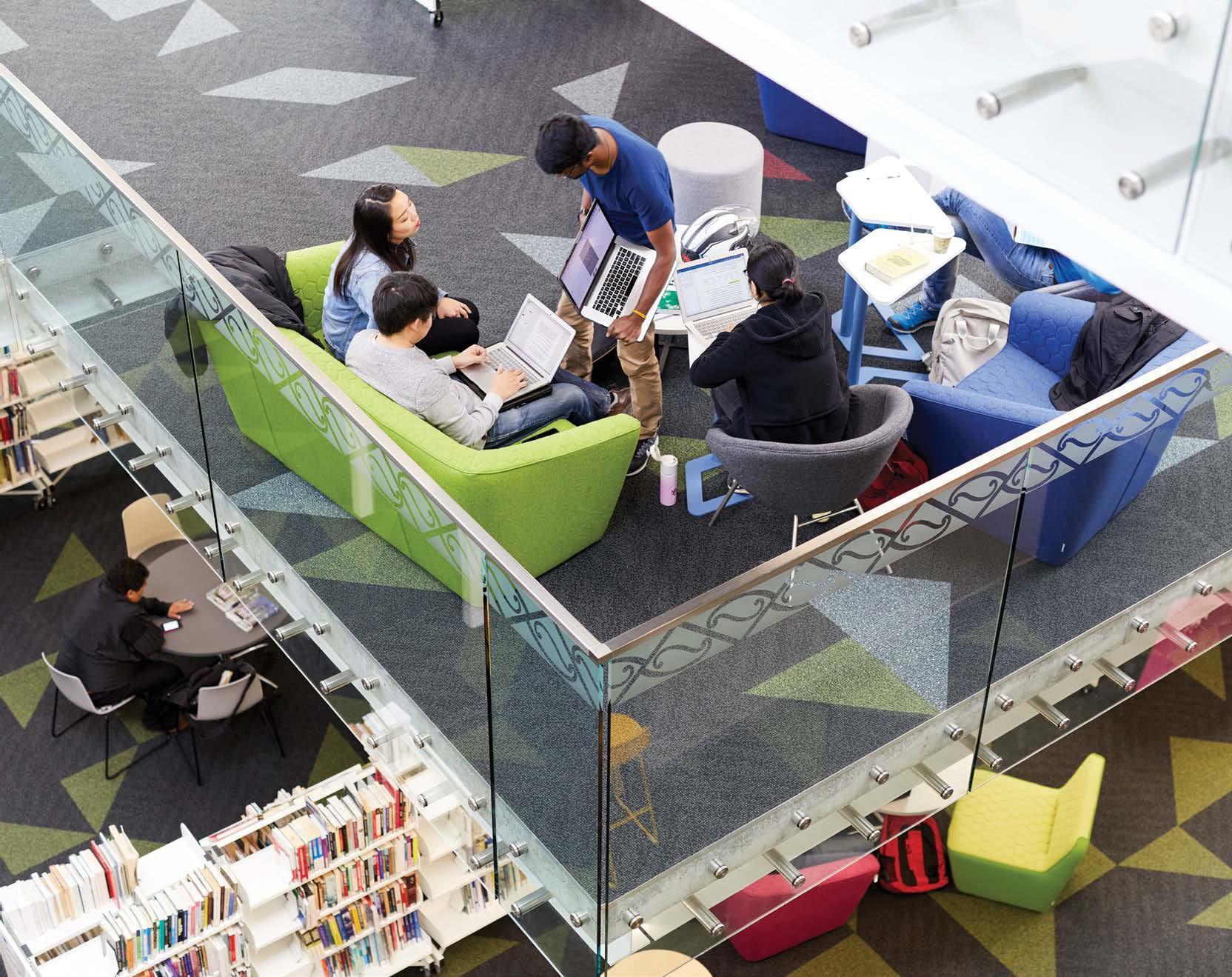
English Requirements
See indicator on pg. 72
AA
60
Putting your best foot forward in a COVID-19 world
Most people would think completing a Bachelor of Art and Design (Animation) and Master of Arts (Illustration and Publication) in China was enough. But not Jingwei.
When he moved to New Zealand in 2017, Jingwei wanted to continue studying but knew he would need to improve his English first. He completed his Level 4 (Academic) certificate at Otago Polytechnic before transferring to Auckland to study his Level 5 (Academic) certificate at Unitec. Jingwei found the Level 5 certificate challenging but rewarding, and was supported by a team of dedicated and approachable teaching staff. He gained valuable research skills that allowed him to move into the Postgraduate Diploma in Creative Practice (Graphics and Animation).
“I learnt a lot from the English course, especially how the academic system works in Western education and how to do research. The teachers I met were perfect and dedicated,” he says.
As a result of his studies, Jingwei created and printed his first graphic novel, called Twentyfive, and secured a job at Universal Pharmaceuticals as a graphic designer. He also took volunteering roles at IT’s Accessible (which provides resources for people with disabilities), and Colour Our Story (which puts together colouring books using illustrations made by children all around the world).
“After succeeding in the English course and my postgraduate studies...I now truly understand what academic research is. I know the scientific process of doing research,” he says.
“I learnt a lot of things when I was in China about graphic design and making comics, but I needed something that could link all of those things, like a key – and I got that from my studies in New Zealand.”
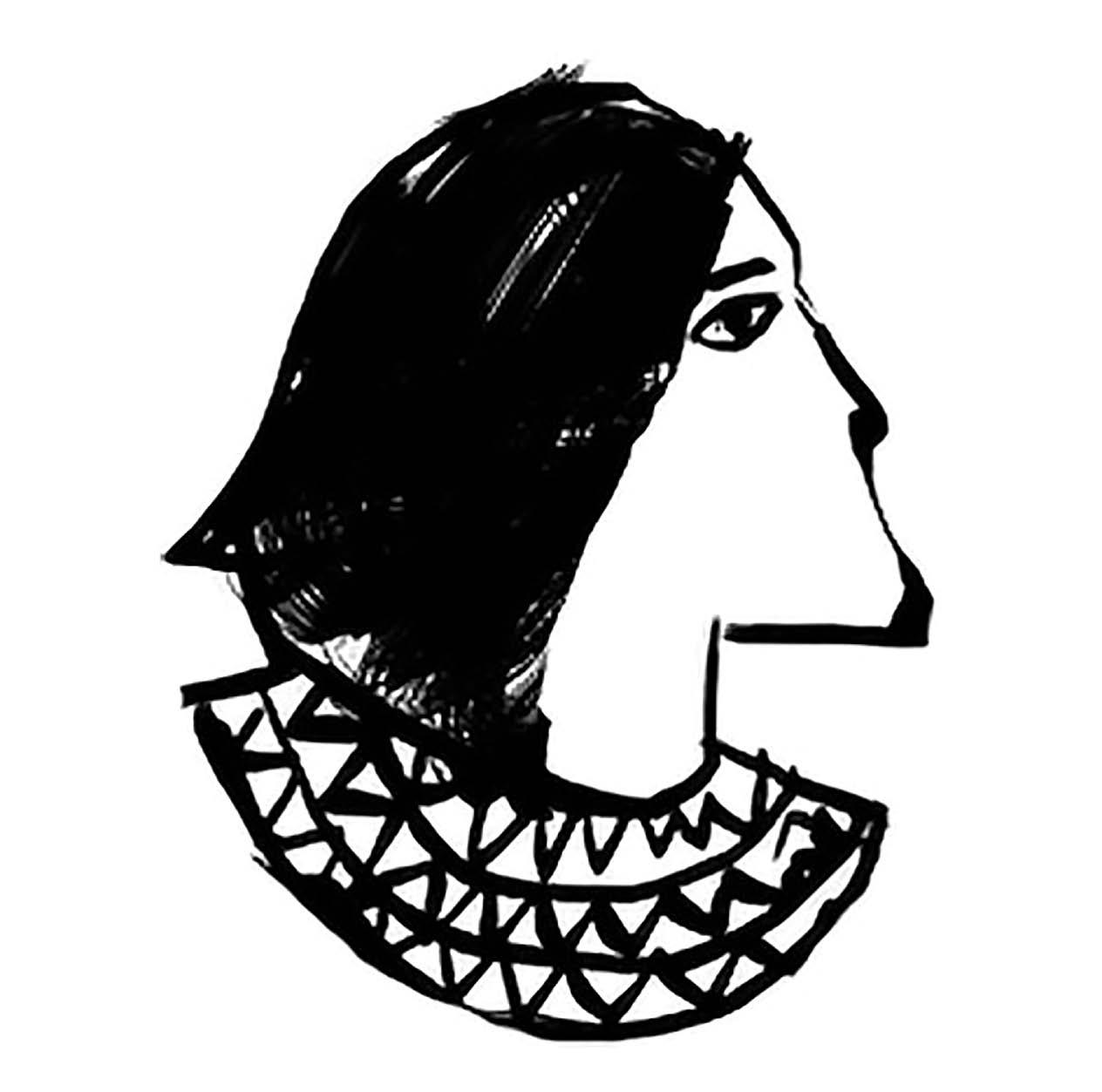
61
xu
Artwork by unitec graduate jingwei
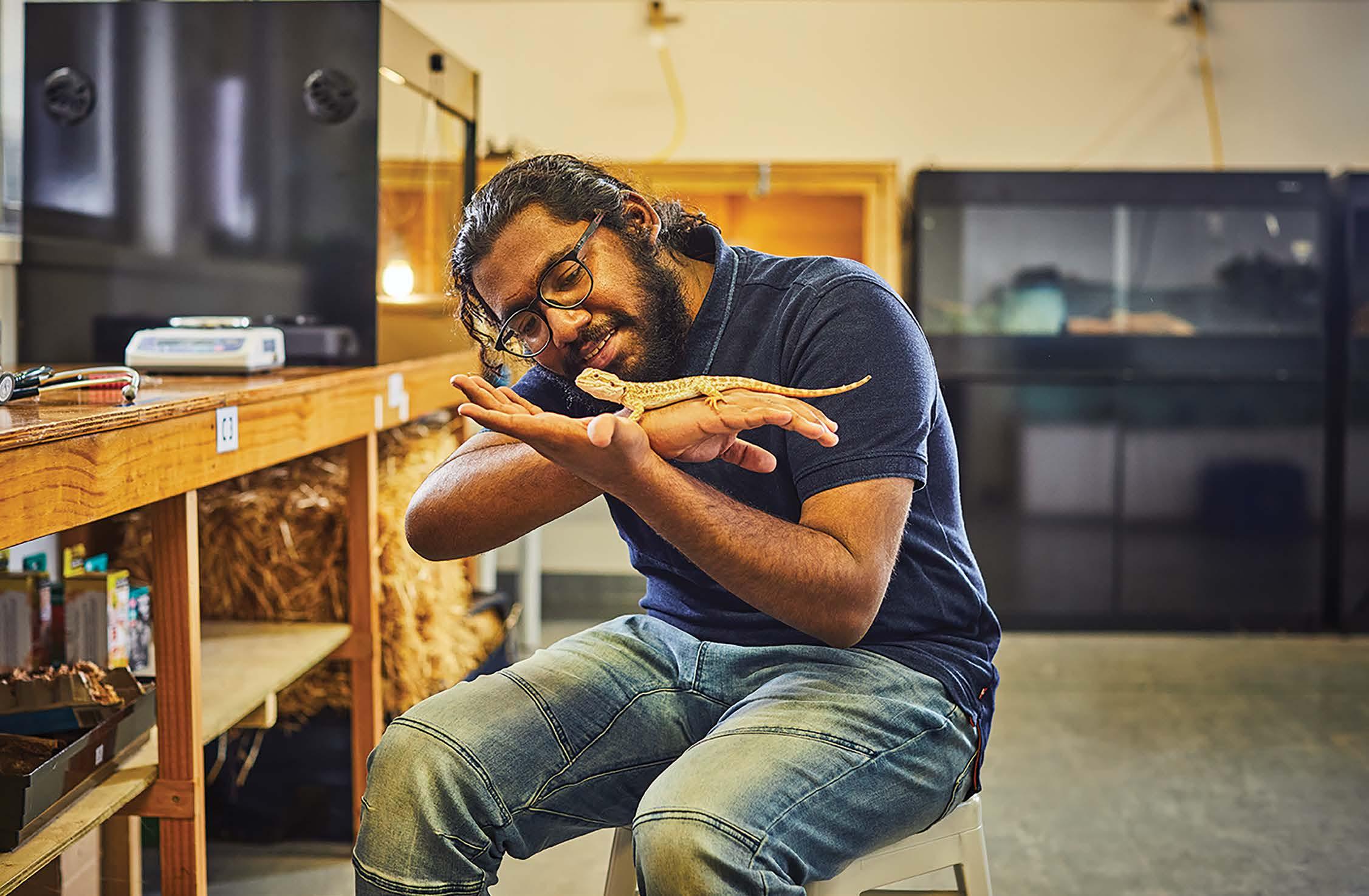
62 Animal Management and Welfare Pg. • New Zealand Certificate in Study and Career Preparation (Level 4) - Applied Science 63 • New Zealand Diploma in Veterinary Nursing 63 • Bachelor of Applied Science (Animal Management and Welfare) 63 • Bachelor of Applied Science (Biodiversity Management) 64 • Bachelor of Veterinary Nursing 64
Environmental and Animal Services Programmes Available
New Zealand Certificate in Study and Career Preparation
(Level 4) - Applied Science
Programme overview
If you want to go on to higher-level study in conservation and biodiversity management, this is the programme for you.
You’ll explore how ecosystems function and learn the relevant literacy, numeracy and scientific skills you’ll need to become a leader in the biosecurity of Aotearoa New Zealand.
Learn from lecturers who are eager to share their industry experience with you through a mix of classroom sessions, practical workshops, critique sessions, guest speakers, discussions, presentations and online learning.
You’ll also have the chance to engage with Unitec’s marae, a great setting to explore mātauranga Māori and the role of culture in communication.
New Zealand Diploma in Veterinary Nursing
Programme overview
In this programme, you’ll develop the technical skills and medical knowledge you need to become an effective, qualified veterinary nurse in a professional team.
Through demonstrations, practical sessions, group work, small group tutorials and real-life case studies, you’ll learn how to manage animal patients and clients, and contribute to the treatment and care of animals. There are plenty of opportunities to put theory into practice at your choice of external clinics across New Zealand.
You will graduate as a qualified veterinary nurse who is able to work effectively and efficiently in a clinical setting, and you’ll be eligible for registration with the New Zealand Veterinary Nursing Association.
Career opportunities
This programme prepares you for study toward a career in ecology, conservation and biodiversity management
Level 4
Programme
Credits 60 (0.5 EFTS) Campus Mt Albert Duration
See
indicator on pg. 72
Career opportunities
• Qualified veterinary nurse (with opportunities to advance to senior levels)
• Veterinary clinic practice manager
• Pet food company representative
• Veterinary supply company representative
• Pharmaceutical company representative
Bachelor of Applied Science (Animal Management and Welfare)
Programme overview
Animal management and welfare is a rapidly growing field of study and work. If you’re keen to get stuck in right away, this unique programme could be the next step you need to take in your career.
You’ll develop in-depth knowledge and understanding of animal behaviour modification, health and welfare, handling and husbandry, conservation and human/animal interactions. You’ll visit various animal welfare organisations and voluntary groups and have a chance to complete a research project in an area of your own interest.
Career opportunities
• Animal welfare scientific officer
• Animal behaviour and/ or welfare consultant
• Welfare education officer
• Animal welfare inspector
• Animal handler
English Requirements
See indicator on pg. 72
Level 6
Programme
Level 7
Programme
Full-time for 16 Weeks Credits 120 (1.0 EFTS) (1.0 EFTS) Campus Mt Albert Duration Full-time for one Year Credits 360 (3.0 EFTS) Campus Mt Albert Duration
Full-time
Can’t decide between animals and the environment? Study a double major and you’ll get the best of both worlds, with a selection of animal and environment-related courses. 63 C
for three years
English Requirements
English Requirements
72 CL4 C
See indicator on pg.
Level 7
Programme
Bachelor of Applied Science (Biodiversity Management)
Credits 360 (3.0 EFTS)
Campus
Mt Albert
Duration
Full-time for three years
Programme overview
Learn about ecosystems, conservation issues, sustainable management of land, animals and plant life, as well as the management strategies that promote the conservation of biodiversity and address biosecurity.
We’ll help you develop your knowledge and confidence in plant identification and there are opportunities for work experience in applied settings in government or voluntary organisations. You may also get the chance to complete a research project in an area of your own interest.
Can’t decide between animals and the environment? Study a double major and you’ll get the best of both worlds, with a selection of animal and environment-related courses.
Level 7
Programme
Bachelor of Veterinary Nursing
Credits 360 (3.0 EFTS)
Campus
Mt Albert
Duration
Full-time for three years
Programme overview
Want to take your passion for veterinary nursing to the next level? This programme sets you up for registration as a veterinary nurse, enables you to increase your critical thinking and provides plenty of research opportunities to develop and further your career.

• Lots of work experience - in your first two years you’ll complete at least 480 hours of work experience, and you can also extend this in your third year.
• Build advanced technical skills through a significant amount of clinical practice at your choice of external clinics across New Zealand.
• Develop an advanced understanding of what’s considered best practice in a clinical environment, and the ethical and welfare implications of veterinary care.
Career opportunities
• Biosecurity officer
• Conservation manager
• Ecology consultant
• Environmental officer
• Geographic information systems (GIS) analyst
English Requirements
C
See indicator on pg. 72
Career opportunities
• Qualified veterinary nurse (with opportunities to advance to senior levels)
• Veterinary clinic practice manager
• Breeding centre manager
• Laboratory animal manager
English Requirements
See indicator on pg. 72 C
64
Say hello to Tūmanako
With a ‘beard’ of spikes that puffs up depending on her mood, Tūmanako (‘hope’ in te reo Māori is a rather fitting name for Unitec’s resident bearded dragon.

Tūmanako came to Te Puna Kararehe (Unitec’s Animal Behaviour and Husbandry Centre) after New Zealand’s first lockdown in 2020. She was a little skittish when she arrived, understandable considering it was a big move from her old home in a pet store.
“Reptiles aren’t thought to have the broad range of feelings that mammals have but I think they get to know their carers, likely by smell, and they trust them,” says Environmental and Animal Sciences senior technician Stacey Middleditch.
After a year at Te Puna Kararehe, Tūmanako is now a happy and sociable girl – and very nosey, Stacey laughs.
“She’s frequently caught with her nose up to the glass of her vivarium, watching the goings-on, especially if it’s something out of the ordinary.”
She’ll also happily sit on your hand or shoulder, so she can watch what’s going on. She’s around eight months old and Stacey says they’re 85% sure she’s female at this point, but it’s not exact until she reaches sexual maturity which can be between 10-18 months old.
A home for all creatures – furry, hairy and scaly
Unitec’s Animal Behaviour and Husbandry Unit provides a safe and secure place for Environmental and Animal Sciences students to learn about the care, health and husbandry of a wide range of companion animal species.
Bearded dragons are among the most popular pet reptiles, as they tend to be gentle, inquisitive and active during the day. Tūmanako fits right in with her fellow small animal friends and has fast become a favourite among animal care and vet nursing staff and students.
“Her friendliness and outgoing personality are fantastic for teaching students about husbandry, enrichment, diet, handling and health checks,” says Stacey.
“She loves her insects, but like most teenagers, isn’t so fond of her veggies. She’s taken a liking to kale, which is great. Now to get her to eat her other greens!”
65 65
Tūmanako, Unitec’s resident bearded dragon

and
Education Programmes Available Foundation and Bridging Education Pg. • New Zealand Certificate in Study and Career Preparation (Level 3) 67 66
Foundation
bridging
New Zealand Certificate in Study & Career Preparation (Level
Programme overview
Are you keen to get a tertiary education but didn’t complete high school? This certificate gives you the confidence, skills and credits to get you started. Here’s how:
• To best prepare you for further study, this programme offers six pathways designed to equip you with the skills you need to progress into your choice of higher-level programmes.
• Develop the study skills, background knowledge and confidence to succeed in your future studies and in the workplace.
• Learn in a supportive adult-learning environment with friendly and knowledgeable lecturers through a mix of group and individual work, seminars, debates, whānau hui, oral and written exercises, and self-directed learning.

3)
Career opportunities
• Entry into further study at certificate or diploma level.
English Requirements
See indicator on pg. 72 CL3
Level 3
Programme
Credits 60 (0.5 EFTS)
Campus Mt Albert Duration
Full-time for 16 Weeks
67

Healthcare and Social Work Programmes Available Medical Imaging Pg. • Bachelor of Health Science (Medical Imaging) 165 Nursing Pg. • New Zealand Certificate in Study and Career Preparation (Level 4) - Health 167 • Bachelor of Nursing 169 68
Competency Assessment Programmefor
Internationally Qualified Nurses
Programme overview
This course is designed to enable and provide internationally-qualified nurses with the skills and knowledge to practise in New Zealand’s health context. It’s ideal for internationally qualified nurses who currently live in New Zealand and want to become registered nurses in New Zealand’s healthcare system.
First, you’ll complete six weeks of theoretical study, including applied learning at Waitākere Hospital’s Simulation Lab. Then you’ll complete six weeks of clinical practice in an acute, primary or aged care facility.
Important Information:
• International students must hold a valid work visa or visitor visa prior to applying for this programme.
• This programme does not qualify internationally-located nurses for a New Zealand student visa.
New Zealand Certificatein Study and Career Preparation (Level 4) - Health
Programme overview
Are you interested in preparing for further study in nursing? This certificate leads to an exciting future in the healthcare sector.
You’ll develop the relevant literacy, numeracy and biological science skills you will need to excel in your dream career. That includes in-depth knowledge of human anatomy, psychology, how to calculate drug quantities, and key research skills that will set you ahead of your peers.
Learn from an experienced and multi-cultural team whose value of partnership and care is reflected in quality teaching, support, and innovative curriculum delivery through a mix of classroom sessions, practical workshops, guest speakers and online learning.
Career opportunities
This programme prepares you for study toward a career in nursing
English Requirements
Short Course
Full-time for 10 weeks
Level 4 Programme
Credits
60 (0.5 EFTS) Campus
Waitākere Duration
See indicator on pg. 72
New Zealand Certificate in Study and Career Preparation (Level 4) - Social Work
Programme overview
Interested in preparing for further study in social work? This certificate is your start to an exciting future in a variety of different social work and community development options.
You’ll develop the relevant literacy, numeracy and biological science skills you will need to excel in your dream career, including fundamental psychological concepts related to working with vulnerable members of society, and best-practice health and wellbeing strategies to ensure a safe working environment.
Learn in a mix of classroom sessions, practical activities, guest speakers and online learning, and get the chance the engage with Unitec’s marae, a great setting to explore mātauranga Māori and the role of culture in communication.
Career opportunities
This programme prepares you for study toward a career in social work and community development
English Requirements
See indicator on pg. 72
AA AA
Full-time for 16 Weeks
Level 4
Programme
Credits
60 (0.5 EFTS) Campus
Waitākere Duration
Full-time for 16 Weeks
69
Credits N/A Campus Mt Albert Duration
Level 7
Programme
Bachelor of Health Science (Medical Imaging)
Credits 360 (3.0 EFTS)
Campus
Waitākere
Duration
Full-time for three years
Programme overview
Interested in becoming a health professional with a career in medical radiation technology? This programme will develop your skills in diagnostic imaging through applied thinking and doing, so you can safely use radiation to obtain images for diagnostic use.
• Gain a sound understanding of anatomy, physiology, pathology, physics, and the medical radiation equipment and clinical techniques you’ll use in the industry.
• Become work-ready by learning to safely obtain images using radiation for diagnostic purposes and get an introduction into more advanced imaging systems.
• Gain clinical experience of over 2000 hours working in a radiology/x-ray department, as well as developing your medical knowledge so you can easily transition to the workplace.
Level 7
Programme
Bachelor of Nursing
Credits 360 (3.0 EFTS)
Campus
Waitākere
Duration Full-time for three years
Programme overview
Develop the skills you need to be a well-rounded, research-informed registered nurse, and an effective team member in New Zealand’s healthcare sector.
Over three years, you’ll complete a minimum of 1100 hours of practice placements and approximately 100 hours in the Awhina Simulation lab at Waitākere Hospital. In your final year, you’ll work rostered nursing duties as you transition into professional nursing practice.
You’ll learn from an experienced and multi-cultural team, many of whom still work in clinical nursing practice, and whose value of partnership and care is reflected in quality teaching, support and innovative curriculum delivery.
Level 7
Programme
Bachelor of Social Practice
Credits 480 (4.0 EFTS)
Campus
Waitākere
Duration Full-time for four yearss
Programme overview
Want to work with your community and make a difference in people’s lives? Our undergraduate social work qualification lets you draw on your life and work experiences, and provides you with the skills and knowledge to work as a registered professional in the social work and community development sectors
You’ll develop the ability to practice social work and community development with culturally diverse groups in an appropriate and inclusive manner. You’ll also develop a sound understanding of, and ability to promote, human rights, social justice and change, as well as empowerment and liberation of different groups and communities by promoting civil and legal rights.
Career opportunities
• Medical imaging technologist (requires registration with MRTB)
English Requirements
See indicator on pg. 72
Career opportunities
• District nurse
• Nurse educator
• Plunket nurse
• Practice nurse
• Public health nurse
English Requirements
See indicator on pg. 72
Career opportunities
• Social worker
• Childcare and protection social worker
• Social worker in schools
• Health/mental health social worker
• Community developer
English Requirements
See indicator on pg. 72
70
NUR
MED C
On a mission to restore mana of men struggling with mental illness
Jason Matia (Te Aupouri, Te Rārawa) is both a victim and perpetrator of family violence and knows all too well how detrimental the mental impact of trauma can be for families if left untreated.
He says “it was normal growing up” for him and his mother to be physically and mentally abused by his father, which led Jason to become a perpetrator of domestic violence in his own relationships.
“I ended up losing my family and access to my kids for two years. I had to prove I had changed and went to counselling for a year, then afterwards, I met a social worker – who turned out to be a Unitec graduate.”
Study gives Jason a fresh start
His experience – and that chance meeting – set Jason on a new path of studying a Bachelor of Social Practice at Unitec, and what he learned inspired him to support other men to stop making the same mistakes he did.

“It’s a hard-hitting degree where you have to peel back a lot of layers of your own life. I realised I felt like I had no power growing up, but I took advantage of the power I had over my partner and that led to me hurting the people I love. I also stopped blaming my father and forgave him.”
Jason believes restoring the mana of men struggling with mental illness is key and is thankful for the support of Unitec staff, who kept him on track – though he wanted to give up many times.
“My long-term goal is to set up a men’s refuge centre where they can seek support and learn how to respect women and healthy ways to deal with what they’re struggling with.”
Since graduating, Jason’s returned home to Te Taitokerau (Northland) to work as a Male Community Advocate with Mid North Family Support, which has been providing free services to whānau in the region for more than 30 years.
“We knew we needed to create real change for men who use violence towards their partners or their children, to help them desist from violence and achieve healing and restoration of mana,” says Doreen Rihari, Jason’s manager.
71 71
Unitec Graduate, Jason Matia
Indicator
English Requirements
English Requirements
Course Level IELTS
Certificate at Level 3
Certificate at Level 4
Diploma at Level 5
Diploma at Level 6
Diploma or degree at Level 7
Graduate Certificate or Diploma at Level 7
Postgraduate diploma at Level 8
Masters Degree at Level 9
Courses with exception
Indicator
Academic score of 5.5 with no band score lower than 5.0
Academic score of 5.5 with no band score lower than 5.0
Academic score of 5.5 with no band score lower than 5.0
Academic score of 6 with no band score lower than 5.5
Academic score of 6.5 with no band score lower than 6
Academic score of 6.5 with no band score lower than 6
Course Name IELTS
New Zealand Certificate in Study and Career Preparation (Level 3)
New Zealand Certificate in Study and Career preparation (Level 4)- Health
New Zealand Certificate in Study and Career preparation (Level 4)- Applied Science
Bachelor of Landscape Architecture Level 7
Graduate Diploma in Construction Project Management Level 7
Bachelors of Teaching ( Early Chilhood Education) Level 7
Bachelor of Nursing Level 7
Bachelor of Engineering Technology Level 7
Bachelor of Medical Imaging Level 7
Academic score of 5.5 with no band score lower than 5.5
Academic score of 5.5 with no band score lower than 5.0
Academic score of 6 with no band score lower than 5.5
Academic score of 6.0 with a minimum band score of 6.0 (writing and speaking) and 5.5 (listening and reading)
Academic score of 7.0 with no band score lower than 7.0
Academic score of 6.5 with no band score lower than 6.5
Academic score of 6.0 with a minimum band score of 6.0 (writing and speaking) and 5.5 (listening and reading)
Academic score of 6.5 with no band score lower than 6.0
A CL3 CL4 ARC CON ECE NUR ENG MED B C D E A A 72
PTE TOEFL
(Academic) score of 36 with no band score lower than 36
(Academic) score of 42 with no band score lower than 36
(Academic) score of 42 with no band score lower than 36
(Academic) score of 50 with no band score lower than 42
Score of 35 (with a writing score of 14)
Score of 46 (with a writing score of 14)
Score of 46 (with a writing score of 14)
Score of 60 (with a writing score of 18)
(Academic) score of 58 with no band score lower than 50
(Academic) score of 58 with no band score lower than 50
Score of 79 (with a writing score of 21)
Score of 79 (with a writing score of 21)
PTE TOEFL
(Academic) with a score of 36 with no band score lower than 36
NA
(Academic) score of 58 with no band score lower than 50
(Academic) score of 58 with score of at least 50 (reading and writing)
Academic (minimum of 65 in all bands)
Score of 35 (with a writing score of 14)
Score of 46 (with a writing score of 14)
Score of 79 (with a writing score of 21)
Score of 79 (with a writing score of 21)
Score of 94 (24 for listening; 24 for reading; 27 for writing; 23 for speaking)
NA NA
(Academic) 50 with no score lower than 42
Score of 60 (with a writing scoreof 18)
NA NA
International Prospectus 2023 73
Country Specific Criteria
Country Pre-degree (certificate or diploma)
Argentina Título de Bachiller (with General-academic stream); Or Técnico (with technicalprofessional stream)
Australia Senior Secondary Certificate of Education (upon completion of Year 12)
Bangladesh Higher Secondary Certifiacte (HSC) with grades of A-D/10033/5.0 - 1.0
Brazil Certificado de Conclusão de Ensino Médio (upon completion of Year 12)
Bachelor degree
Pass 1-year tertiary study from a recognised institution.
Postgraduate
A recognised bachelor degree with minimum B- in the final year
Completion of year 12 and an Australian Tertiary Admission Rank (ATAR) score of 60%; Or equivalent.
Pass 1-year tertiary study from a recognised institution.
A recognised bachelor degree with minimum B- in the final year.
A Master degree from a recognised institution or a bachelor degree from Bangladesh University of Engineering and Technology (BUET)
Pass 1-year tertiary study from a recognised institution.
Canada Completion of Year 12. Quebec - Diplôme d'études collégiales (DEC); For all other provinces - High School Equivalency Diploma (name may vary from different provinces) with minimum 65% (issued upon completion of Year 12); Or The General Educational Development Test (GED).
Chile Licencia de Educación Media or Licencia de Enseñanza Media with grades of 4 and above.
China Secondary School Graduation Certificate (高中毕业证书) plus senior secondary Year 3 transcript, min 70%
Denmark Folkeskolens 10. Klasseprøve (Class 10 Advanced Leaving Examination) with grades of 12-7.
Pass 1-year tertiary study from a recognised institution.
A Tier 2 score in the National University Entrance Examination (Gaokao/高考); Or pass 1 year tertiary study from a recognised institution.
Studentereksamen - STX (Upper Secondary School Leaving Examination); Or Højere Forberedelseseksamen - HF (Higher Preparatory Examination); Or Højere Handelseksamen - HHX (Higher Commercial Examination); Or Højere Teknisk Eksamen - HTX (Higher Technical Examination).
A recognised bachelor degree with minimum B- in the final year.
A recognised bachelor degree with minimum B- in the final year.
A recognised bachelor degree with minimum B- in the final year.
A recognised bachelor degree with minimum B- in the final year.
A recognised bachelor degree with minimum B- in the final year.
England General Certificate of Secondary Education (GCSE) Ordinary levels Grades A-C in 4 subjects.
FIJI
Fiji School Leaving Certificate (Form 6).
General Certificate of Secondary Education (GCSE) Advanced Levels Grades A-C in 3 subjects.
Fiji Seventh Form Examination with an average of 250 out of 400; Or minimum 8 Passes in USP Foundation studies; Or South Pacific Form Severn Certificate (SPFSC) with minimum three B.
A recognised bachelor degree with minimum B- in the final year.
A recognised bachelor degree with minimum B- in the final year.
International Prospectus 2023 74
Country
France/New Caledonia Fiji School Leaving Certificate (Form 6).
Bachelor degree
Fiji Seventh Form Examination with an average of 250 out of 400; Or minimum 8 Passes in USP Foundation studies; Or South Pacific Form Severn Certificate (SPFSC) with minimum three B.
Postgraduate
A recognised bachelor degree with minimum B- in the final year.
Germany Realschulabschluss / Mittlerer Schulabschluss) grades 1 – 4.
Hong Kong Hong Kong Diploma of Secondary Education (HKDSE) / 香港中學文 憑 with minimum of three subjects at level 3, excluding English.
India Year 12 with at least a 55% avarage in four relevant academic subjects in BBSE HSC or IC boards or equivalent in other boards.
Japan Upper Secondary School Leaving Certificate (高等学校卒業証書 Kōtō Gakkō Sotsugyō Shōmei Sho) with grades of 2 and above.
Kenya Kenya Certificate of Secondary Education (KCSE) with grades A-C.
Malaysia Sijil Pelajaran Malaysia (SPM) with grade A-C; Or subsidiary passess in Sijil Tinggi Persekolahan Malaysia (STPM);Or minimum grade C in at least 3 academic subjects (excludes language subjects) in Unified Examination Certificate (UEC) Senior Middle Level.
Mexico Bachillerato General with grade of 6 and above
Nepal Higher Secondary Certificate
New Zealand NCEA (See Unitec website for more information on the credits required); Or IGCSE with 3 A-C; Or a NZQA accredited certificate.
Abitur of Zeugnis der Allgemeinen Hochschulreife (High School of General College Entrance).
Hong Kong Diploma of Secondary Education (HKDSE) / 香港中學 文憑 with minimum of three subjects at level 4 or higher (out of 1-5), excluding English.
Year 12 with at least a 70% average in four relevant academic subjects in CBSE, HSC, or ISC, or equivalent in other boards, or equivalent Diploma pass.
Upper Secondary School Leaving Certificate (高等学校卒業証書Kōtō Gakkō Sotsugyō Shōmei Sho). With a B average, Pass 1-year tertiary study from a recognised intuition.
Pass 1 year tertiary study from a recognised institution.
Principle passes in STPM; Or minimim B3 in Unified Examination Certificate (UEC) Senior Middle Level
A recognised bachelor degree with minimum B- in the final year.
A recognised bachelor degree with minimum B- in the final year.
A recognised bachelor degree with minimum B- in the final year.
A recognised bachelor degree with minimum B- in the final year.
A recognised bachelor degree with minimum B- in the final year.
A recognised bachelor degree with minimum B- in the final year.
Pass 1 year tertiary study from a recognised institution.
Pass 2 years tertiary study from a recognised institution.
NCEA, Foundation Studies,a certificate, a diploma or equivalent. (See UNITEC website for more information on the credits required).
A recognised bachelor degree with minimum B- in the final year.
A recognised bachelor degree when studied for more than 4 years with B- final year.
A recognised bachelor degree with minimum B- in the final year.
Pre-degree (certificate or diploma)
International Prospectus 2023 75
Country Specific Criteria
Country Pre-degree (certificate or diploma)
Nigeria West African Senior School Certificate from WAEC with grades of 1-6; Or Senior School Certificate from NECO with grades of A1 - C6; Or IGCSE with minimum 3 A-C grades (excludes English).
Norway Vitnemål for grunnskolen with grades of 6-3 (Leaving Certificate from Lower Secondary School)
Oman General Education Diploma


Pakistan Intermediate or Higher Secondary Certificate (HSC) with minimum 50% in all subjects, must include at least 3 academic electives.
Bachelor degree
GCE A Level with minimum 3 A-C grades (excludes English); Or at least a Diploma from a Public university.
Postgraduate
A recognised bachelor degree with minimum B- in the final year.
Vitnemål for videregående opplæring, previously known as the Vitnemål fra den videregående skole in 1990s (Completion certificate when finishing 13 years of education).
Pass 1-year tertiary study from recognised institution.
Pass 1 year tertiary study from a recognised institution.
A recognised bachelor degree with minimum B- in the final year.
A recognised bachelor degree with minimum B- in the final year.
A recognised bachelor degree when studied for more than 4 years with B- final year.
Papua New Guinea Higher School Certificate. Pass 1-year tertiary study from recognised institution eg University of the South Pacific.
Philippines If graduated from secondary school before 2018 - Higher School Diploma plus pass 1-year tertiary study from recognised institution;If graduate since 2018 - High School Diploma with minimum 75% (first awarded to Year 12 high school graduates in 2018).
Russia Аттестат о среднем (полном) общем
образовании ( Certificate of Complete General Secondary Education) with grades of 3 and above.
Samoa Samoa School Certificate (SSC)
Saudi Arabia General Secondary Education Certificate
Pass 2-year tertiary study from recognised institution.
A recognised bachelor degree with minimum B- in the final year.
Bachelor degree from a prestigious university Or A master degree from other recognised institution.
Pass 1-year tertiary study from recognised institution.
A bachelor degree or a specialist diploma from a recognised institution, with minimum B- final year.
Samoa Secondary Leaving Certificate (SSLC) or pass 1 year of tertiary study from a recognised institution.
Pass 1-year tertiary study from recognised institution
A recognised bachelor degree with minimum B- in the final year
A recognised bachelor degree with minimum B- in the final year
International Prospectus 2023 76
Country Pre-degree (certificate or diploma)
Singapore GCE O levels with grades 1 - 6.
Solomon Islands Pacific Senior Secondary Certificate with grades of 1 – 5 or Solomon Island School Certificate.
South Africa National Senior Certificate (NSC).
South Korea 고등학교 졸업증명서 / 고등학교 졸업장 (High School Diploma / High School Certificate of Graduation).
Sri Lanka GCE Ordinary Level examinations (O levels) grades of A-C.
Taiwan Senior High School Leaving Certificate (高級中學畢業證書).
Thailand Certificate of Secondary Education (also known as Maw 6) with a score of 50% or above.
Tonga Pacific Senior Secondary Certificate on completion with grades of 1-5.
Bachelor degree
GCE A levels with 3 x A-C grades.
South Pacific Form Seven Certificate (SPFSC) with minimum grade ;Or pass USP foundation studies.
Pass 1-year tertiary study from recognised institution.
Pass 1 year tertiary study from a recognised institution
Postgraduate
A recognised bachelor degree with minimum B- in the final year
A recognised bachelor degree with minimum B- in the final year
A recognised bachelor degree with minimum B- in the final year
A recognised bachelor degree with minimum B- in the final year
GCE Advanced Level examinations (A levels) with three A-C grades.
Pass 1-year tertiary study from recognised institution.
Pass 1-year tertiary study from recognised institution.
South Pacific Form Seven Certificate; Or USP foundation; Or pass 1 year tertiary study from a recognised insitution.
United States Of America High School Diploma with C average. High School Diploma plus minimum score of 500 for both SATI and SATII; Or High School diploma plus a minimum ACT scale score of 22; Or Advanced Placement Examination with minimum 3.
Vanuatu Pacific Senior Secondary Certificate (PSSC) with grades 1 – 5.
Vanuatu Pacific Senior Secondary Certificate (PSSC) with grades 1 – 5.
South Pacific Form Seven Certificate (SPFSC); Or USP foundation; Or pass 1 year tertiary study from a recognised insitution.
South Pacific Form Seven Certificate (SPFSC); Or USP foundation; Or pass 1 year tertiary study from a recognised insitution.
A recognised bachelor degree with minimum B- in the final year
A recognised bachelor degree with minimum B- in the final year
A recognised bachelor degree with minimum B- in the final year
A bachelor degree from the University of the South Pacific (Centre), with minimum B- final year.
A recognised bachelor degree with minimum B- in the final year
A bachelor degree from the University of the South Pacific (Centre), with minimum B- final year.
A bachelor degree from the University of the South Pacific (Centre), with minimum B- final year.
International Prospectus 2023 77
International Prospectus 2023 78
Notes
Notes International Prospectus 2023 79










































 Unitec Graduate Mary Star (Middle)
Unitec Graduate Mary Star (Middle)
























